National News
-
All tourist spots in Kerala will be disabled-friendly & accessible by 2021, promises State Tourism Minister K Surendran
Over the last few years, under the Barrier-Free Project, the Kerala government has been working towards making all major tourist destinations accessible and disabled-friendly. Now in a major announcement, Kerala Tourism Minister K Surendran has said that all tourist spots will be covered under the project and will be disabled-friendly & accessible by 2021.
-
Delhi Police doubles 'PRAKHAR' anti-street crime vans
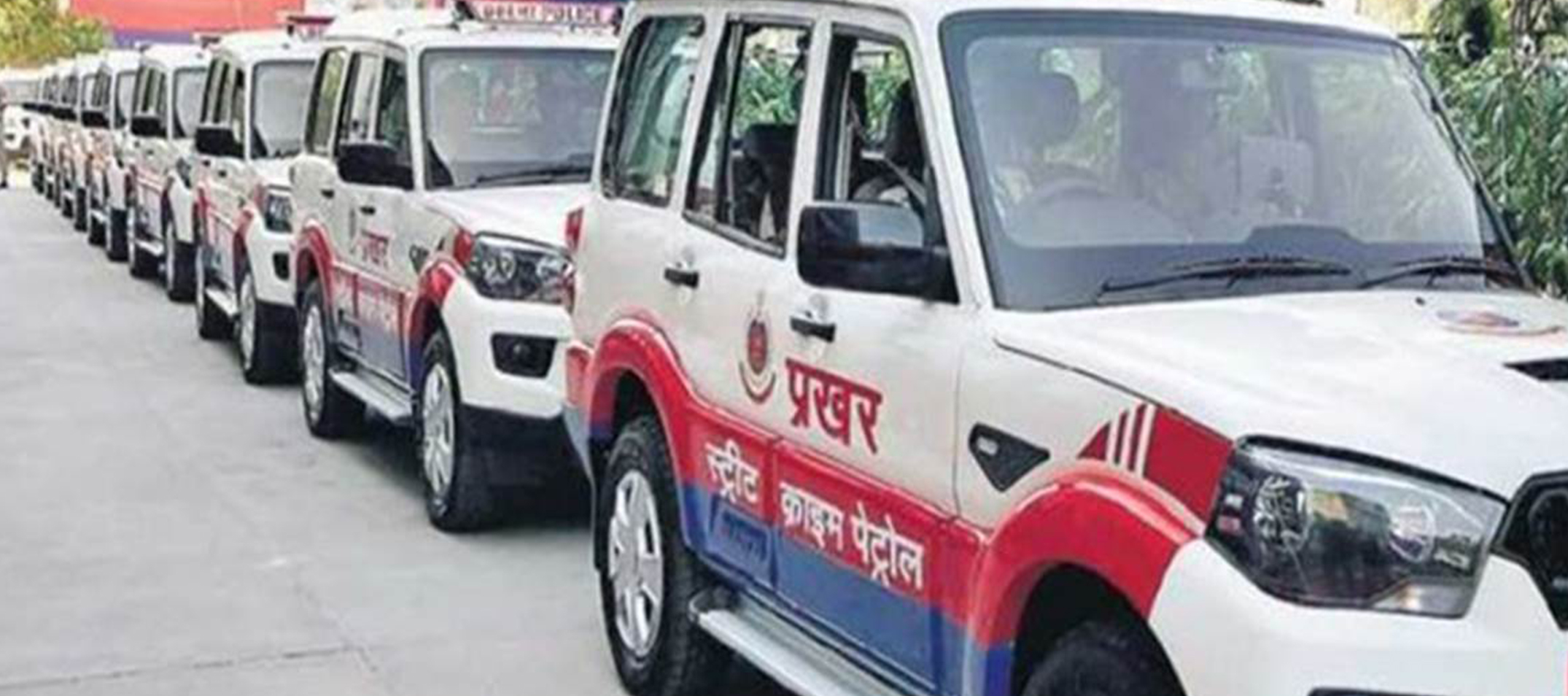
Delhi Police Commissioner Amulya Patnaik flagged off 15 'PRAKHAR' vans, with the latest addition taking the number of such special vehicles to curb street crimes in the national capital. These patrol vans tasked especially to curb street crimes as well as crimes against women in the vulnerable areas are specially designed and equipped with latest gadgets for quick transmission of information about any crime. The new vans are in addition to the already operational 15 'PRAKHAR' vans launched last month. Each 'PRAKHAR' van is also equipped with Mobile Data Terminal (MDT) with inbuilt GPS besides the wireless set. The MDT immediately transmits the calls related to street crimes as soon as it is received in Command Room to the concerned nearest PRAKHAR' van for immediate action. These vans conduct intensive patrolling and dedicated checking at the vulnerable points in the crime-prone areas of the districts. The deterrent presence of these patrol vans has substantially helped in curbing crime, as the number of calls related to incidents of snatching and robbery have decreased in the localities covered by 'PRAKHAR' MPVs during the one month.
-
India to adopt Brazil model of human milk bank
India has taken inspiration from Brazil’s success in the field of human milk bank decided to adopt a similar model in creating a wide network of human milk banks. The Centre has set a target of ensuring at least 70 per cent infants to have access to breast milk by the year 2025. Target will subsequently be increased to 100 per cent.
-
Vice President seeks a new political normal based on 15 point reform charter for better functioning of Parliament
Vice President M Venkaiah Naidu unveiled the 15-point reform charter for a new political concept to ensure effective functioning in Parliament and State Legislatures. The Vice President appealed to the political parties to ensure at least fifty per cent attendances for the proceedings of the House by adopting a roster arrangement. He was referring to the lack of attendance in the legislatures and the decline in the level of debate. He also called for a thorough review of the anti-defection law in view of its shortcomings. Some of the highlights of the charter are:
- As per the VP Venkaiah Naidu pre and post-legislative impact assessment should be done.
- The charter includes a review of the whip system which is stifling reasonable dissent even on non-consequential matters.
- Special courts should be established for time-bound adjudication of criminal cases against legislators.
- VP Venkaiah Naidu said that we should address the problem of the rising number of legislators with a criminal background.
- The government in power should be responsive to the opposition and opposition should be responsible and constructive while working in parliament.
- All political parties should understand the value of simultaneous elections and we should make a consensus on the proposal.
- A regular report on the attendance of members during the proceedings should be published by the secretariats of legislatures.
- In case of interruptions and disruptions, some rules should be framed against erring members.
- At least 50 per cent of attendance must be ensured by all political parties.
- He insisted that some concrete steps should be taken for the effective functioning of the Parliamentary Committees.
- VP Venkaiah Naidu said that the representation of women in legislatures needs to be raised.
- He also said that legislators should abide by the rules of the house.
In the last 50 years, the functions and structures of Parliament had gone through various changes. It is said that many laws have been passed in parliament to bring development in the country but little efforts have been made to develop the basic prerequisites for the success of parliamentary ethics like attendance, discipline, sense of public morality, character among others.
-
New Odisha initiative: Meal in exchange for plastic waste
In an effort to raise awareness about the perils of using plastic, the Kotpad Notified Area Council (NAC) in Koraput district is providing free meals to the poor in exchange for a kilogram of plastic waste. The programme entails a meal for anyone who brings a kilogram of used polythene bags, plastic bottles and cups and it is being carried out under the state government's 'Aahar' scheme.
Under the Odisha government's 'Aahar' scheme, poor people in urban areas of the state are provided a meal comprising rice and 'dalma' (lentils with vegetable) at a cost of Rs 5. The NAC administration has put up banners and posters at various areas of the town to make people aware about the new initiative, and a special counter has also been opened at the Aahar centre. At least 10 kg of plastic waste items were received and accordingly, 10 meals were given under the 'Aahar' scheme.
-
Tamil Nadu becomes first State to enact law on contract farming
Tamil Nadu has become the first State in the country to enact a law on contract farming with President Ram Nath Kovind giving assent to the Agricultural Produce and Livestock Contract Farming and Services (Promotion and Facilitation) Act. The law would safeguard the interests of farmers when there is a bumper crop or during major fluctuation in market prices. In such a scenario, the farmers will be paid a predetermined price arrived at the time of signing agreements with buyers. However, any produce that is banned by the Centre government or the State government or by the Indian Council of Agricultural Research, would not be covered under contract farming.
According to Tamil Nadu Agricultural University, Coimbatore, contract farming refers to varied formal and informal agreements between producers and processors or buyers. It may include loose buying arrangements, simple purchase agreements and supervised production with input provision, with tied loans and risk coverage. Contract farming usually involves the following basic elements - pre-agreed price, quality, quantity or acreage (minimum/maximum) and time (Manage 2003). Contracts can range from oral deals to formal, registered written contracts.
-
Government sets up panel to reduce stress in telecom sector
To understand the stress and devise the strategy to eliminate financial burden in the telecom sector, the government has set up a Committee of Secretaries (CoS) under Cabinet Secretary Rajiv Gauba. The Committee of Secretaries (CoS) will have representatives from law, finance and telecom ministries that will study subjects like reduction in Spectrum Usage Charges (SUC) and Universal Service Obligation Fund (USOF) charges, a 2-year moratorium on spectrum auction to ease cash-flow in the sector. The decision to set up a CoS comes after the apex court rejected the definition of AGR (Adjusted Gross Revenue) given by telecom companies and sustained the government’s definition of revenue. Earlier on October 24, 2019, the Supreme Court ended the decade long legal tussle between DoT (Department of Telecommunications)and telecom operators by rejecting the definition of AGR mooted by telecom companies that excluded revenue from non-core telecom operations such as rent, dividend and interest income. The court also asked the telecos to pay dues along with interest within 90-days. Bharti Airtel and Vodafone Idea are the two companies that have been hit hard by this decision. They will have to pay pending license fee and SUC dues of over Rs 41,000 crore and 39000 crores respectively.
In total, the telecom companies will have to pay Rs. 92000 crore to the government for spectrum and license fee dues that have accumulated over these years. Therefore, the telecos are looking to extend the deadline and reduce the amount.
-
The Unquiet River A biography of the Brahmaputra to be released
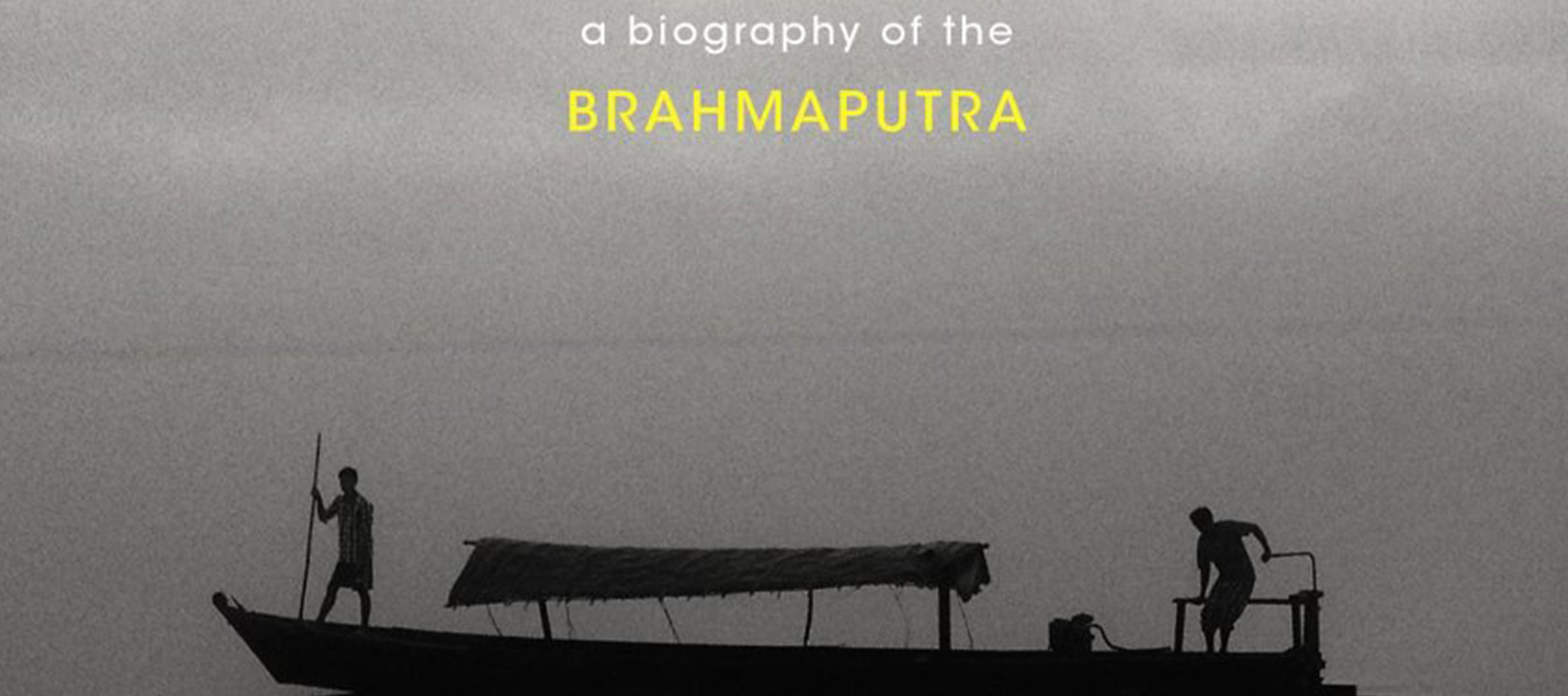
A book titled The Unquiet River: A biography of the Brahmaputra by historian Arupjyoti Saikia will be released in the month of November 2019. The book was published by Oxford University Press (OUP). The book reimagines the layered history of Assam with the river at the centre.
-
Odisha to partner Nobel laureates’ J-PAL
Odisha Government is all set to partner Abdul Latif Jameel Poverty Action Lab (J-PAL), co-founded by Nobel laureates Abhijit Banerjee and Esther Duflo, for targeted intervention in a set of social sectors including poorest of the poor through policy formulation and evaluations based on experimental research. This is the first comprehensive partnership J-PAL would have with an Indian State after the Banerjee-Duflo duo was conferred the Sveriges Riksbank Prize in Economic Sciences in memory of Alfred Nobel, simply known as the Nobel Prize for Economics.
J-PAL is going to work in at least eight districts of the State including the KBK region on improvement of poorest of the poor, women as well as nutrition. The partnership with a prestigious research centre like J-PAL is being done under Odisha Government’s 5T Initiatives which look at transformative action.
The State which has put in years of efforts in lifting a substantial chunk of the population out of poverty line through food security measures and raising human development index using a bouquet of welfare-based models is looking to up its actions by collaborating with J-PAL which has worked on targeted interventions through field-based trials.
The Massachusettes Institute of Technology (MIT)-based J-PAL, known for its experimental research studies or randomised controlled trials, has worked extensively in Africa as well India and its evaluations have helped improve outcomes of social sector initiatives.
Earlier in September, J-PAL had inked a pact with National Health Mission of Haryana Government to improve its health outcomes through better programme implementation. In 2014, Tamil Nadu Government had tied up with the poverty action lab for implementation of various schemes in poverty alleviation, health as well as education sectors.
After the Banerjee-Duflo duo along with Michael Kremer won the Nobel, Chhattisgarh Government also had believed to have approached J-PAL for collaboration. However, Odisha Government managed to get first in line for the partnership.
-
India's life expectancy rises to 68.7 years: National Health Profile 2019
Life expectancy in India has increased from 49.7 years in 1970-75 to 68.7 years in 2012-16, as per the National Health Profile 2019 released. For the same period, the life expectancy for females is 70.2 years and 67.4 years for males. For comparison, in last year's survey, the life expectancy had increased from 49.7 years in 1970-75 to 68.3 years in 2011-15. For the same period, the life expectancy for females is 70 years and 66.9 years for males. So there has been an increase in life expectancy in general, and also for males.
The population, however, continues to grow, as the decline in the birth rate is not as rapid as the decline in the death rate.
The infant mortality rate has declined considerably (33 per 1,000 live births in 2016), however differentials of rural (37) & urban (23) are still high.
The Total Fertility Rate (TFR) for the country was 2.3 whereas in rural areas it has been 2.5 and it has been 1.8 in urban areas during 2016 as per the latest available information.
On the health status indicators, the survey finds that on communicable diseases, in 2018, maximum number of cases and deaths due to malaria have been reported in Chhattisgarh (77,140 cases and 26 deaths). The overall prevalence of the disease has diminished in 2012 and 2013 but there was a slight increase in 2014 and 2015 before it again started decreasing from 2016.
Dengue and Chikungunya, transmitted by Aedes mosquitoes, are a cause of great concern to public health in India.
Every year, thousands of individuals are affected and contribute to the burden of health care. Dengue outbreaks have continued since the 1950s but severity of disease has increased in the last two decades. However, the reported cases of Chikungunya in the country has shown a slight decrease from 67,769 to 57,813 in 2018 as compared to 2017.
There has been considerable decrease in the number of swine flu cases/deaths in the year 2014 as compared with 2012 and 2013. However, the number of cases and deaths has been drastically increased in the year 2015. The numbers decreased in 2016 but again increased significantly in 2017 and 2018.
During the year 2015, 4.13 lakh people lost their life due to accidental injuries and 1.33 lakh people died because of suicide. Suicide rates are increasing significantly among young adults and the maximum number of suicide cases (44,593) is reported between the age group 30-45 years.
The total number of cases and deaths due to snake bite are 1.64 lakh and 885, respectively, in 2018.
The total number of disabled persons in India is 2.68 crore.
-
Jharkhand assembly elections to be held in 5 phases starting November 30, results on December 23
Elections in Jharkhand will be held in five phases and will start on November 30. Results for the Jharkhand assembly elections will be declared on December 23. Polling will be held in 81 assembly seats in Jharkhand. The first phase of Jharkhand assembly elections will be held on November 30, the second phase will be held on December 7, third phase on December 12, fourth phase on December 16 and the last and fifth phase of polling will be held on December 20.
Jharkhand is currently ruled by the Bharatiya Janata Party. Among the primary challenges that BJP chief minister Raghubar Das will face in this election will be crime -- especially lynching and mob violence -- and dissatisfaction within the BJP over how he has managed the government in the last five years.
-
NDRF launches ‘Clean Cooum Campaign’ to restore polluted waterway
Governor Banwarilal Purohit inaugurated the ‘Clean Cooum Campaign’ organised by National Disaster Response Force (NDRF) to restore the Cooum and Adyar rivers to the environmental standards that prevailed in the 50s and 60s.
Around 1950, Cooum had 49 species of fish, and by the late 1970s, this had come down to 21 species. At present there are no fish in the river, owing to the toxic pollutants found in the river water. Cooum and Adyar were both covered under the National River Conservation Programme and that considerable funds were provided to the Chennai Metropolitan Sewerage Board in the past. While some efforts were undertaken, the inability to arrest the sewage outfalls and the lack of a comprehensive plan to save the river resulted in the pollution levels in the river.
The 04th Battalion NDRF is now spearheading a campaign to clean the river Cooum at a number of locations along the river covering a length of 13 km. This cleanliness drive will initially take place at Koyambedu, Annanagar Causeway, Annanagar Skywalk, Nungambakkam, Spurtank Road, Albert theatre, Apollo hospital, Chinthadripet and near Napier Bridge. Around 1,500 volunteers from various government and non-governmental organisations including the Central Industrial Security Force, Central Reserve Police Force, Greater Chennai Corporation, Nehru Yuvak Kendra, National Cadet Corps and Indian Red Cross have joined hands to make this programme a success. Private institutions and hospitals are also joining in this effort. The NDRF is planning to carry out the cleaning twice a month for the next 3 to 4 months, so that a significant contribution is made towards reducing the level of pollution in the Cooum river.
The 04th Battalion with jurisdiction for the area comprising Tamilnadu, Kerala, Pondicherry, Andaman & Nicobar and Lakshadweep & Minicoy Islands has its headquarters in Arakkonam.
Over the years this battalion has played a stellar role in several disaster mitigation efforts. Their rescue operations in Tamilnadu such as during the Chennai Floods of 2015, the Vardha Cyclone of 2016, the Okhi Cyclone of 2017 and the Gaja Cyclone of 2018 have won them the appreciation of the common people. The NDRF has along displayed a high level of professionalism and a strong sense of responsibility and concern for public welfare. The Clean Cooum Campaign launched today is one another effort in this direction.
- Bamboo Technology Parks to be set up in the two new UTs of Jammu and Kashmir, and Ladakh
Dr. Jitendra Singh, Union Minister of State (Independent Charge), Ministry of Development of North Eastern Region announced that Bamboo Technology Parks would be set up in the two new Union Territories of Jammu & Kashmir and Ladakh. The Cane and Bamboo Technology Centre (CBTC) under NEC will implement the project
-
Mumbai member of UNESCO creative cities network for film, Hyderabad for gastronomy
UNESCO has designated Mumbai as a member of UNESCO Creative Cities Network (UCCN) in the field of Film, and Hyderabad in the field of Gastronomy. UCCN, created in 2004, is a network of cities which are thriving, active centres of cultural activities in their respective countries. The UNESCO Creative Cities Network now counts a total of 246 cities. The member cities that form part of the network come from all continents and regions with different income levels and populations.
The 7 categories for recognition under UCCN are: crafts and folk arts, design, film, gastronomy, music, media arts and literature. Three Indian cities have been earlier recognised as members of UCCN - Jaipur (Crafts and Folk Arts) in 2015, Varanasi (Creative city of Music) in 2015 and Chennai (Creative city of Music) in 2017. Culture ministry is the nodal ministry for all matters in UNESCO relating to culture.
-
Union Territory of Ladakh gets New Regional Centre of GB Pant Institute of Himalayan Environment & Development
Realizing the importance of the Indian Himalayan region and recognizing the need to study its ecology, Union Minister for Environment, Forest and Climate Change, Shri Prakash Javadekar approved the proposal of setting-up of a New Regional Centre of the GB Pant Institute of Himalayan Environment & Development at Ladakh. As the setting up of the Centre is being envisaged concurrently with Ladakh being designated as a separate Union Territory (UT), the Institute is expected to have an institutional linkage with the Ladakh Administration right from its inception. This association would be mutually beneficial to the Institute through the facilitation of UT government for setting-up of the centre (i.e., appropriate space for work initiation, land for own campus and technology park/demonstrations) and aligning the centre’s activities with priorities and needs of newly created UT. The setting-up of this centre would ensure Institute's Research & Development outreach in entire Trans Himalayan zone of Indian Himalaya by way of targeting following objectives:
-
India, Germany sign 17 MoUs, five joint declarations exchanged
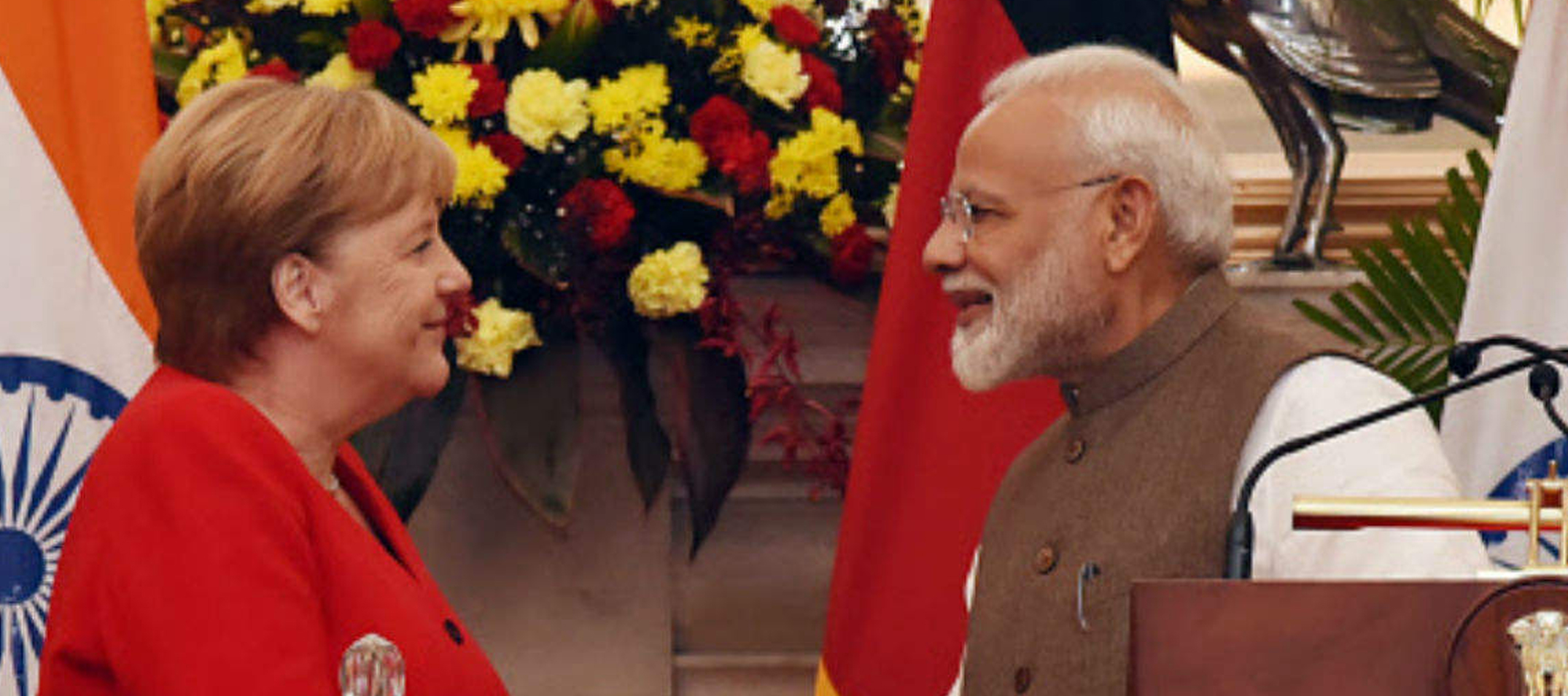
India and Germany signed 17 MoUs in areas including migration, Ayurveda and yoga, occupational diseases, maritime technology and start-ups during German Chancellor Angela Merkel's two-day visit to India from October 31- November 2, 2019.
The two nations also exchanged five joint declarations of intent which included cooperation on strategic projects, partnership for green urban mobility, development of AI and cooperation to prevent marine litter.
The German Chancellor Angela Merkel visited India to co-chair the 5th Inter-Governmental Consultations (IGC) along with PM Narendra Modi. She was accompanied by top-level Ministers and a business delegation. During the visit, the German Chancellor conducted bilateral discussions with President Ram Nath Kovind and Prime Minister Narendra Modi. The German Chancellor and PM Narendra Modi issued a joint statement after the conclusion of the talks.
-
Robotic surgery facility in Safdarjung Hospital dedicated to the Nation
The robotic surgery facility in the Safdarjung Hospital (SJH) New Delhi was dedicated to the nation by the Union Minister of Health and Family Welfare Dr Harsh Vardhan. Safdarjang Hospital is one of the biggest tertiary care referral centre of India, under Ministry of Health and Family Welfare catering to all poor patients of uro-oncological cancers like prostate, kidney, bladder cancers and kidney failures, from different parts of country. It is also the first Central Government hospital in India to start this latest Robot Surgery facility for all poor patients for free. Robotic surgery has the advantage of providing minimally invasive surgery, reducing significantly the morbidity & mortality of critically ill, cancer and kidney failure patients. The Robotic system provides 7 degrees of freedom, 3-D vision, 10 times magnification and better dissection with more precision. The operating time also decreases resulting in improvement in turnover of patients and decrease in waiting list of patients for surgery significantly.
Already 25 surgeries have been done using robotic system including prostate, kidney, bladder cancers and advanced reconstructive surgeries by Dr Anup Kumar, Head of Department (HOD), Urology and Renal Transplant, SJH and VMMC.
SJH has dedicated 21 modular operation theatres, including 24x7 two dedicated renal transplant OTs and a dedicated Robotic OT for Kidney Failure and Urology cancers, for poor patients of India.
-
PM Modi releases commemorative coin marking 550th birth anniversary of Guru Nanak
Prime Minister Narendra Modi released a commemorative coin marking the 550th birth anniversary of Guru Nanak Dev, as well as a Thai translation of Tamil classic 'Tirukkural'. PM Modi is on a three-day visit to Thailand to participate in the Association of Southeast Asian Nations (ASEAN), East Asia, and Regional Comprehensive Economic Partnership (RCEP) summits.
-
Public Health Emergency Declared in Delhi as Air Quality Breaches Danger Level.
A Supreme Court-mandated panel declared a public health emergency in the Delhi-NCR region and banned construction activity till November 5 as the air quality dipped to “severe-plus” levels and left citizens gasping for breath. The Environment Pollution (Prevention and Control) Authority (EPCA) also banned the bursting of crackers during the winter season.
An AQI between 0-50 is considered 'good', 51-100 'satisfactory', 101-200 'moderate', 201-300 'poor', 301-400 'very poor' and 401-500 'severe'. Above 500 falls in the 'severe-plus emergency' category.
If the air quality persists in the "severe plus" category for more than 48 hours, emergency measures such as odd-even car rationing scheme, banning entry of trucks, construction activities and shutting down schools are taken under the Graded Response Action Plan.
-
Kanpur is world’s most polluted city: Guinness World Records 2020
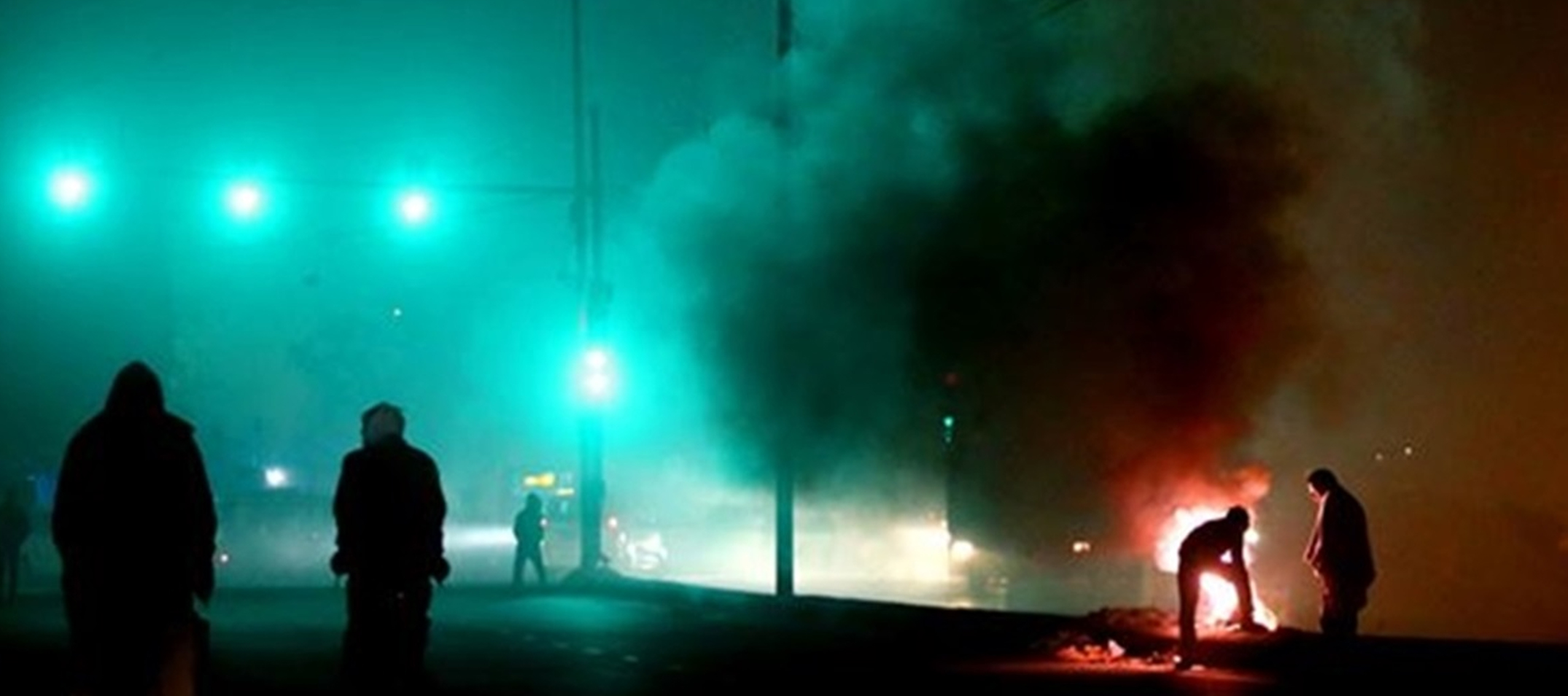
The city of Kanpur in Uttar Pradesh held the title for the world’s most polluted city in the latest edition of Guinness World Records. The book, ‘Guinness World Records 2020’, lists thousands of new record titles and holders that will educate curious readers of all age groups. It is released annually by publisher Penguin Random House. This year, about 80 record breaking achievements by Indians that have made it to latest edition of book.
A report by World Health Organization (WHO) analyzed that the most polluted city in the world is Kanpur in northern India, with an average PM2.5 level of 173 micrograms/m3 for the year 2016. This PM2.5 level is more than 17 times higher than WHO recommended maximum of 10 micrograms/m3.
PM2.5 refers to atmospheric particulate matter(PM) that have a diameter of less than 2.5 micrometers (i.e. nearly 3% diameter of a human hair). The PM2.5 are very small particles like dust, soot and ash and the prolonged exposure of it can cause cancer, lung and heart conditions.
Cause of PM2.5 pollution: Some PM2.5 particles are emitted directly from a source, like construction sites, unpaved roads, fields, smokestacks or fires while most particles form in atmosphere as a result of complex chemical reactions like SO2 and NO2, which are pollutants emitted from power plants, industries and automobiles. Out of the world’s 20 most PM2.5-polluted cities, 14 are in India.
-
Coal India To Produce One Billion Tonne Of Coal By 2024: Minister of Coal & Mines
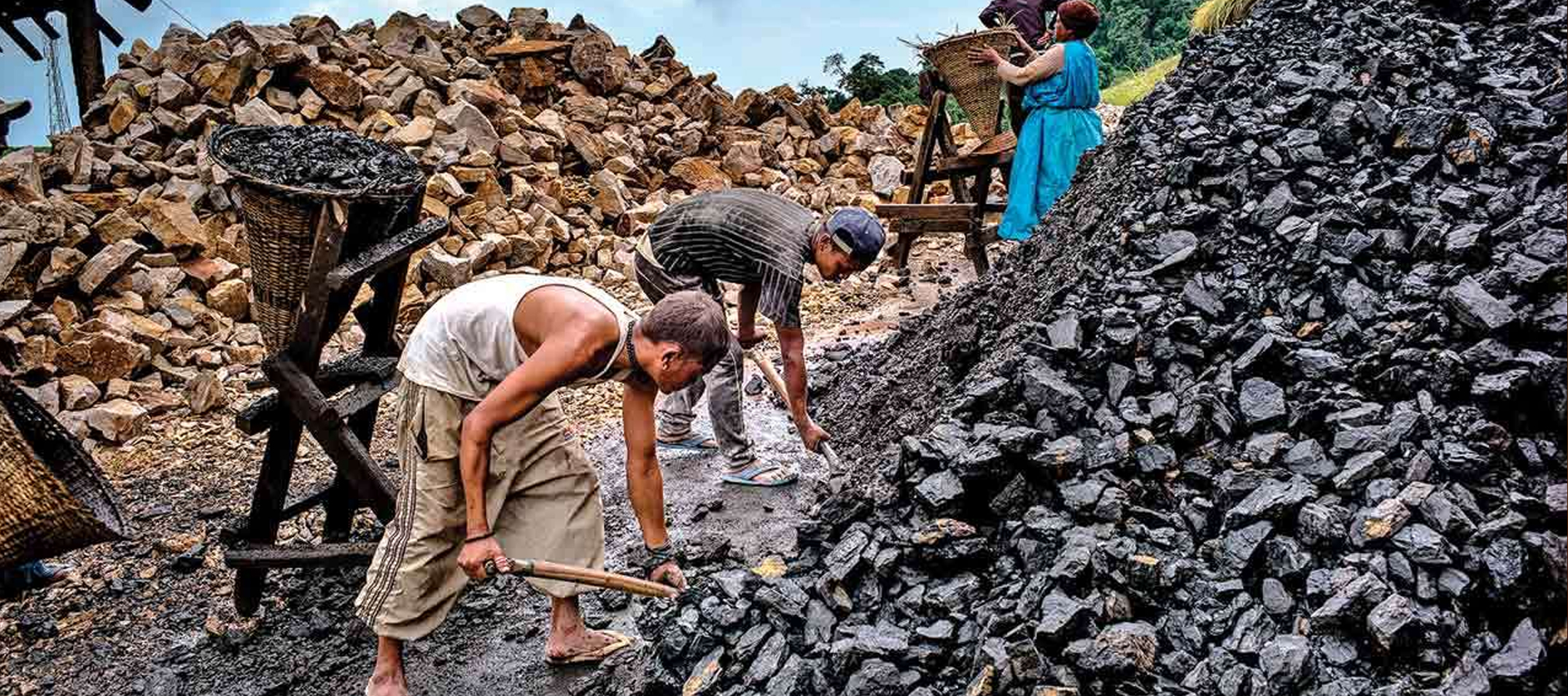
Minister of Coal & Mines, Pralhad Joshi said that the Coal India Limited (CIL) will produce 750 million tonnes of coal by the Financial Year 2020-21 and would further produce one billion tonne of coal in the financial year 2023-24. The Minister announced this target during his address at the 45th Foundation Day of CIL in Kolkata. The CIL is currently given the target of producing 660 million tonnes of coal amounting to 82% of the country's coal output. The CIL is also likely to offer around ten thousand new jobs to boost employment. He directed CIL to take necessary steps to achieve this goal in light of growing energy requirements of the nation and assured CIL of all possible help from the Ministry of Coal in this regard.
With the demand for power rising steeply, there is enough opportunity for both government and private sectors to produce coal without adversely impacting each other. Referring to the central government's recent decision of 100% FDI under automatic route in coal sector, as one of the much-needed structural reforms in the sector, he said that it will minimize the volume of coal import and will be mutually beneficial. The Minister sought to allay the fears of domestic players and labour unions by reiterating that FDI in coal does not stand for FDI in Coal India.
-
28 states, 9 Union Territories in India
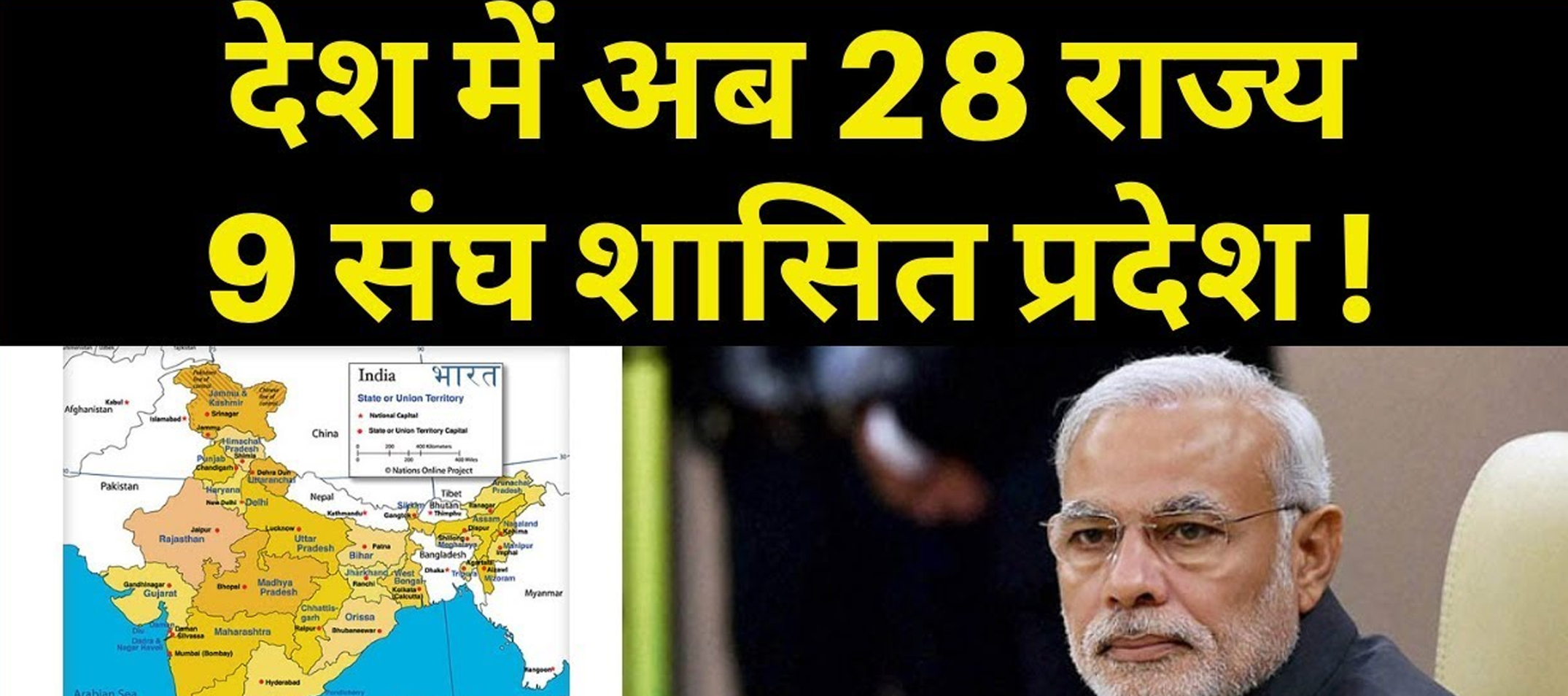
With the Union Territories of Jammu and Kashmir and Ladakh formally coming into existence on 31 October 2019, the Union Ministry of Home Affairs released a new map of India with 28 states and 9 Union Territories.
The Lieutenant Governors of the two UTs took oath of office along with the Chief Justice of the Jammu and Kashmir High Court. The Union government appointed serving IAS officer of Gujarat cadre Girish Chandra Murmu as the LG of Jammu and Kashmir, and retired bureaucrat of Tripura cadre Radha Krishna Mathur as LG of Ladakh.
With the inclusion of J&K and Ladakh, here is the full list of UTs in India:
- Andaman and Nicobar
- Chandigarh
- Daman and Diu
- Dadar and Nagar Haveli
- Delhi
- Jammu and Kashmir
- Ladakh
- Lakshadweep
- Puducherry
Complete list of Indian states:
- Andhra Pradesh
- Arunachal Pradesh
- Assam
- Bihar
- Chhattisgarh
- Goa
- Gujarat
- Haryana
- Himachal Pradesh
- Jharkhand
- Karnataka
- Kerala
- Madhya Pradesh
- Maharashtra
- Manipur
- Meghalaya
- Mizoram
- Nagaland
- Odisha
- Punjab
- Rajasthan
- Sikkim
- Tamil Nadu
- Telangana
- Tripura
- Uttar Pradesh
- Uttarakhand
- West Bengal
Economy News
-
World Bank to continue with USD 6 billion annual lending support to India
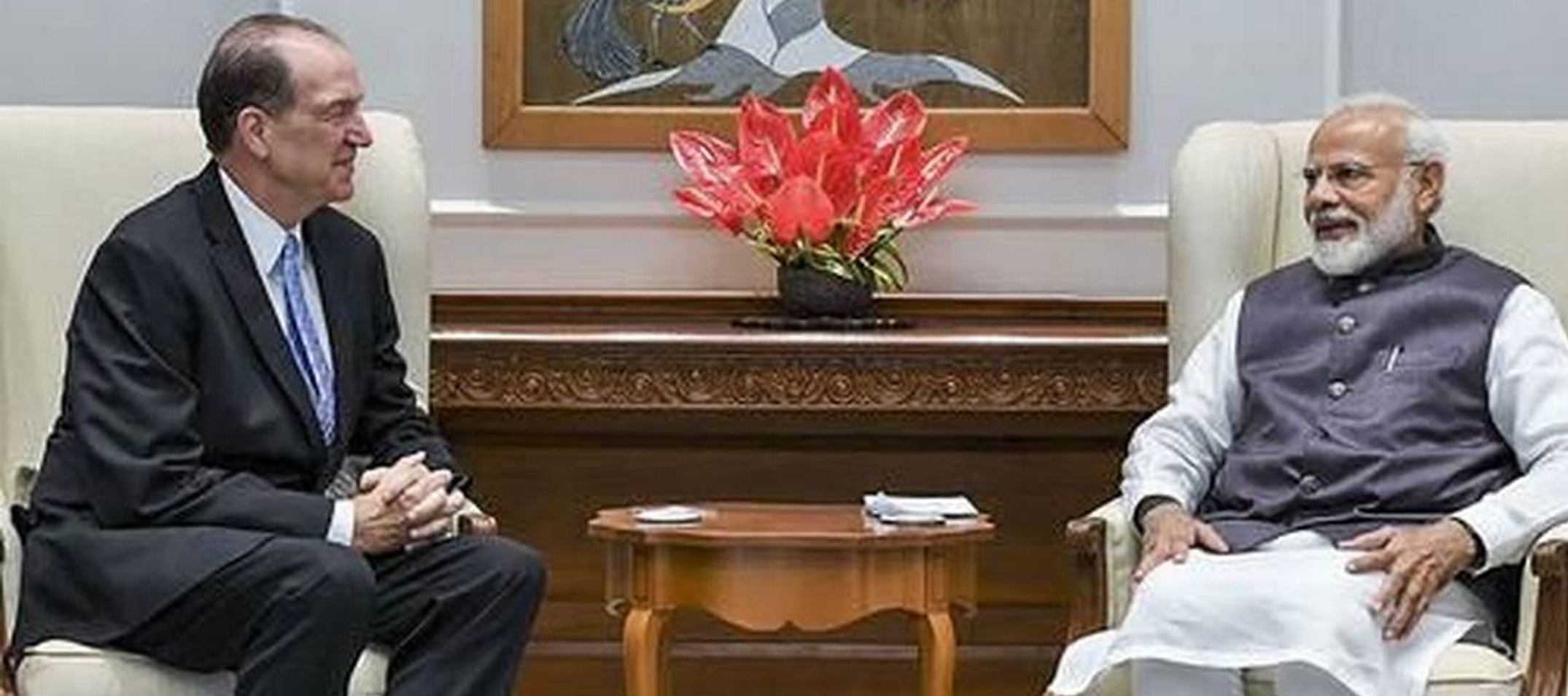
World Bank President David Malpass said the multi-lateral funding agency will continue with USD 6 billion annual lending target for India to support infrastructure development and alleviate poverty. As many as 97 projects are being currently executed with loan assistance from the World Bank.
-
Finance Minister Releases Commemorative Coin on Paramahansa Yogananda to Mark his 125th Birth Anniversary
The Union Minister for Finance & Corporate Affairs Smt. Nirmala Sitharaman released a special commemorative coin on Paramahansa Yogananda to mark his 125th birth anniversary.
-
Government confirms malware attack in state-run NPCIL’s system
The government confirmed that malware was detected at state-run Nuclear Power Corp. of India Ltd’s (NPCIL) system last month. The matter was conveyed by the Indian Computer Emergency Response Team (CERT-In) when it was noticed by them on September 4, 2019. CERT-In coordinates efforts on cybersecurity issues and is tasked with responding to cyberattacks, while the National Technical Research Organization is the elite technical intelligence agency.
Some high-profile cyberattacks include the November 2017 malware attack on THDC Ltd’s Tehri dam in Uttarakhand, the May 2017 ransomware attack on West Bengal State Electricity Distribution Co. Ltd, the February 2018 attack on a Rajasthan discom website, and the March 2018 attack on Haryana discoms in which the commercial billing software of the highest paying industrial customers was hacked. The National Critical Information Infrastructure Protection Centre also reported several vulnerabilities in the state power utilities in May 2018. The activities of NPCIL include design, construction, commissioning, operation and maintenance, renovation and modernization, research and development, upgrades, life management, and waste management.
A majority of the attacks originate from China, Singapore, Russia and the Commonwealth of Independent States countries. As such, there are growing concerns that the country’s power infrastructure could be the next target of terrorists looking to cripple its economy. The issue has assumed greater importance as India now has an integrated national power grid, with south India joining the national electricity grid in January 2014.
-
Indian Army participates in Border Personnel Meeting organized by PLA
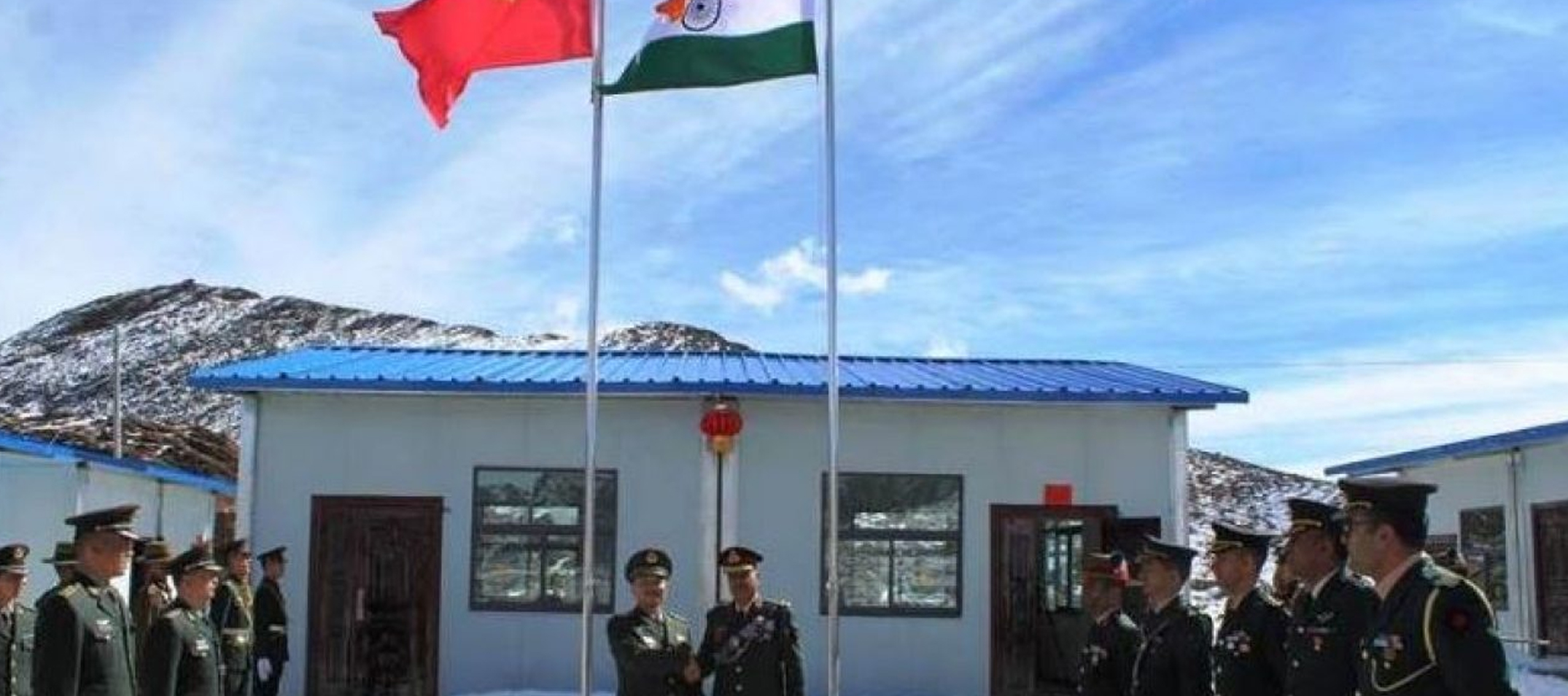
Border Personnel Meeting (BPM) between the Indian Army and People's Liberation Army was conducted by the People 's Liberation Army on 30 October 2019 on the Chinese side at Bum La.
The Border Personnel Meeting was marked by unfurling of both the National Flags followed by a formal address by the delegation leaders and discussion on various issues to enhance the existing mutual trust and bonhomie between World's two largest armies. The mutual desire to enhance cooperation and cordial relations was evident from the conducive environment that prevailed during the proceedings.
The BPM on 30th Oct every year is in vogue since the signing of Border Peace and Tranquility agreement between both the Nations on 07 Sep 1993. In the last 26 years, the BPM mechanism has evolved into a vital platform for resolving local issues and fostering mutual confidence amongst the Border Guarding Troops of both the countries.
-
Israeli spyware Pegasus, which carried out surveillance via WhatsApp
The popular messaging platform WhatsApp was used to spy on journalists and human rights activists in India earlier this year. The surveillance was carried out using a spyware tool called Pegasus, which has been developed by an Israeli firm, the NSO Group. WhatsApp sued the NSO Group in a federal court in San Francisco, accusing it of using WhatsApp servers in the United States and elsewhere “to send malware to approximately 1,400 mobile phones and devices (‘Target Devices’ for the purpose of conducting surveillance of specific WhatsApp users (‘Target Users’)”. The NSO Group is a Tel Aviv-based cyber-security company that specialises in “surveillance technology” and claims to help governments and law enforcement agencies across the world fight crime and terrorism.
-
Indian Railways goes paperless-RailTel completes phase-I of e-office cloud-enabled software for railways work
RailTel has successfully completed the implementation of phase-I of the NIC e-Office suite. Now, a total of 58 establishments of Indian Railways are adopting paperless work culture. As of 30 October 2019, RailTel has created over 50,000 users in these 58 establishments of the national transporter and also trained executives to handle the platform. In March 2019, RailTel signed the MoU with Indian Railways for the Phase 1 with a mandate to complete the work by March 2020. The PSU, which is one of the largest neutral telecom services providers in the country, completed the work ahead of time. Implementation of e-Office is a Mission Mode Project (MMP) under the Modi government’s National e-Governance Programme. Developed by National Informatics Centre (NIC), NIC e-Office is a cloud-enabled software that is being deployed or hosted from RailTel Tier III certified data centres at Gurgaon and Secundrabad. According to details shared by RailTel, it is based on the Central Secretariat Manual of e-Office Procedure.
At present, 4 modules- File Management System, Collaboration and Messaging Services, Personnel Information Management System, Knowledge Management System are part of the e-Office system being implemented.
The purpose behind the implementation of e-Office for India’s largest public transporter is to provide an efficient, effective and reliable way to handle office documents and files. According to RailTel, the system ensures complete transparency as anything written on the file once cannot be changed or undone. Also, there is a monitoring mechanism to see where the files are held up.
Some of the other immediate advantages of NIC e-Office include quick disposal of files as well as systematic, timely monitoring of pending files. With these advantages, the national transporter will be changing the work culture for providing better services to the public. The project facilitates paperless culture which will help to save operational cost and will also reduce carbon foot print.
-
'Dharma Guardian' military exercise between India, Japan concludes in Mizoram
The second edition of the annual joint military exercise, named as Dharma Guardian between Indian and Japanese Army ended at Counter Insurgency and Jungle Warfare School (CIJWS) Vairengte in Mizoram. The primary focus of this fortnight-long joint military exercise was to train and equip the contingents in counter-insurgency and counter-terrorism operations in mountainous terrain. As part of the exercise, important lectures, demonstrations and drills related to counter-insurgency and counter-terrorism operations were conducted. Both the Armies also shared their valuable experiences in countering such situations as also refined drills and procedures for joint operations.
-
TRAI fixes mobile call ring time at 30 seconds; 60 secs for landline
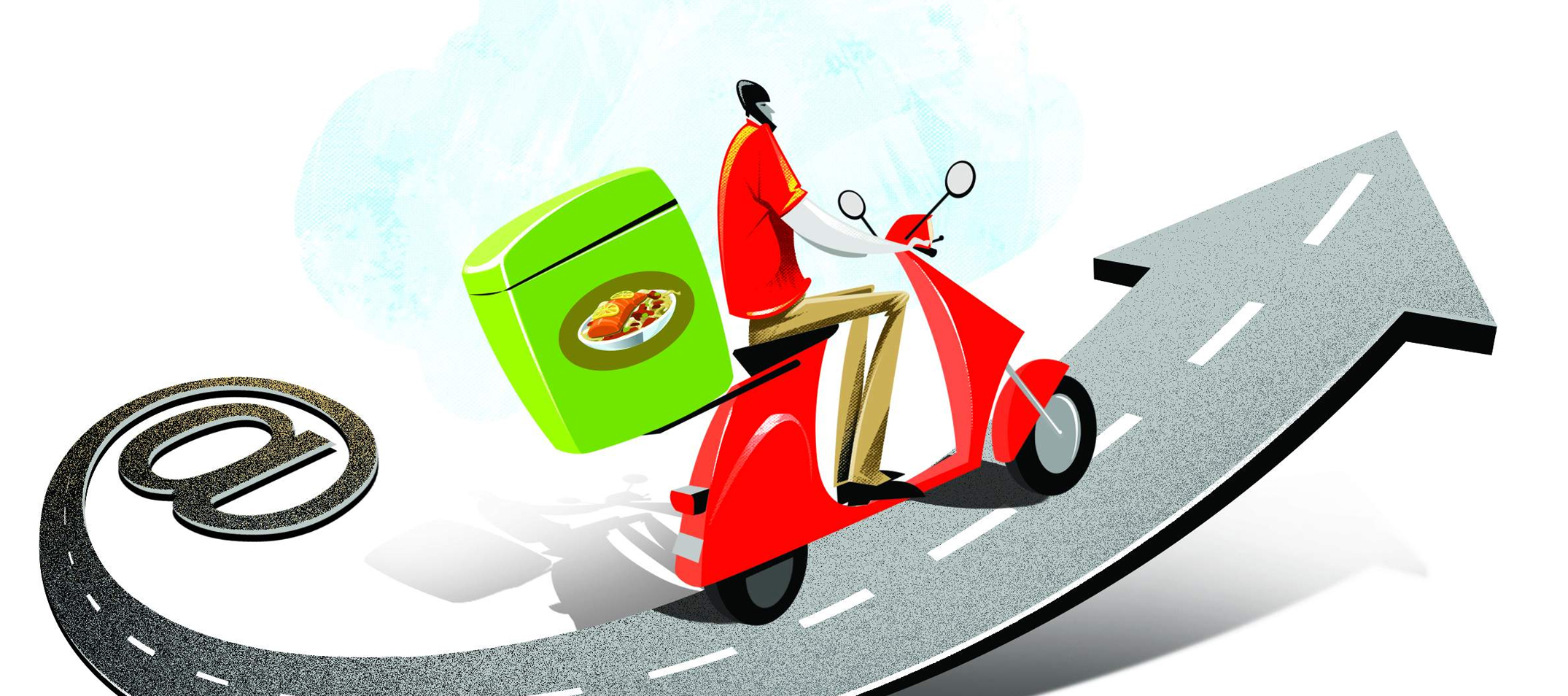
Telecom Regulatory Authority of India (TRAI) fixed phone call ring time at 30 seconds on mobiles and 60 seconds for landline phones, in case the call is neither answered nor rejected by the subscriber. Till now there was no such limit for calls within India.
-
Now workers can generate UAN from EPFO portal directly
Retirement fund body, Employees' Provident Fund Organization, has launched a facility for formal sector workers to obtain universal account number on-line. Now workers can generate Universal Account Number from the EPFO portal directly. At present, workers are required to apply through their employers to get the Universal Account Number.
-
India's Oct unemployment rate rises to 8.5%, highest in over 3 years: CMIE
India's unemployment rate in October rose to 8.5%, the highest since August 2016, and up from 7.2% in September, according to data released by the Centre for Monitoring Indian Economy (CMIE), reflecting the impact of a slowdown in the economy. India's infrastructure output fell 5.2% in September from a year earlier, the worst performance in years, while the industrial output shrank at its fastest rate in more than six years in August.
-
India-Uzbekistan Joint military Exercise - Dustlik-2019 to begin at Chirchiq near Tashkent
Defence Minister Rajnath Singh and his Uzbekistan counterpart Major General Bakhodir Nizamovich Kurbanov presided over the Curtain Raiser of the first-ever India-Uzbekistan Joint Exercise - Dustlik-2019. The joint military exercise focused on counter-terrorism. The exercise will enable sharing of best practices and experiences between the Armed Forces of the two countries and would lead to greater operational effectiveness.
-
India signs MoU with Saudi Arabia to launch RuPay card in Gulf Kingdom
India signed an agreement with Saudi Arabia to launch the RuPay card in the country, making it the third nation in the West Asia to initiate India's digital payment system which will benefit not only the 2.6 million Indians in the Gulf Kingdom but also Haj and Umrah pilgrims.
The RuPay card is a first-of-its-kind Indian domestic Debit and Credit Card payment network, with acceptance at ATMs, POS devices and e-commerce websites. It was launched in 2012 to fulfil the Reserve Bank of India's vision to have a domestic, open and multilateral system of payments.
India has already launched the RuPay card in the UAE, Bahrain, Singapore and Bhutan. RuPay is a highly secure network that protects against cyberhacks and is India's version of Master Card and Visa.
Today, there are close to 500 million RuPay cards in circulation in India.
RuPay has also tied-up with international players like Discover, Japan Credit Bureau and China Union Pay to enhance its international acceptance and recently achieved a milestone of issuing 25 million RuPay cards.
India's relations with Saudi Arabia have been on an upswing over the last few years based on burgeoning energy ties besides cooperation in several other areas. Prime Minister Modi's first visit to Riyadh in 2016 put bilateral ties on a new trajectory.
-
IIIT Hyderabad researchers create first ever Indian Brain atlas
Researchers at the IIIT Hyderabad said that the first ever Indian Brain Atlas (IBA) has been created. They stated that the next step is to prepare atlases for different age groups to study age related affects on brain anatomy. It was found that the Indian brain on average is smaller in height, width, and volume as compared to the western (MNI) as well as the eastern population (Chinese and Korean).
The immediate implication of this finding can be seen in treatment outcomes of neurological problems or brain related ailments - like dementia, Alzheimer’s disease, Parkinson’s disease etc.
Medical practitioners depend on Magnetic Resonance Imaging (MRI) scan to decide on the line of treatment. The references they use are the one’s created by the Montreal Neurological Institute (MNI), based on Caucasian brains.
The earliest known brain atlas, the Talairach and Tournoux atlas, was created by manually drawing post-mortem brain sections of a 60-year-old French woman. It was in 1993 that the MNI and the International Consortium for Brain Mapping (ICBM) created the first digital human brain atlas. More recently, MNI and ICBM have released other brain atlases that are widely used as a standard in neuroscience studies. However, these ‘standard’ brain templates created using Caucasian brains are not ideal to analyze brain differences from other ethnicities, such as the Indian population.
These differences are found even at the structure level, such as in the volume of the hippocampus and so on. But overall, the IBA 100 is more comparable to the Chinese and Korean atlases than the distant Caucasian one (MNI).
-
Now, overseas citizens of India can subscribe to National Pension System
The Pension Fund Regulatory and Development Authority (PFRDA) has now permitted Overseas Citizen of India to enrol in NPS at par with non-resident Indians (NRIs). According to a notification by the Department of Economic Affairs on Foreign Exchange Management (Non-debt Instruments) Rules, 2019, the OCIs may subscribe to the NPS which is being governed and administered by PFRDA.
OCI willing to subscribe NPS should be eligible to invest as per the provisions of the PFRDA Act and the annuity/accumulated saving will be repatriable, subject to FEMA (Foreign Exchange Management Act) guidelines. The contributions made towards the NPS are eligible for an additional tax deduction under section 80CCD (1B) up to ?50,000 which is over and above the ?1,50,000 limit of deduction available under section 80CCD (1).
In the Union Budget 2019, the tax exemption limit for lumpsum withdrawal on exit/maturity from the NPS has been increased from the present 40 per cent to 60 per cent under section 10 (12A) of the IT Act and the remaining 40 per cent of the corpus is already tax-exempt as it is mandatorily utilised for annuity purchase.
-
5 lakh govt vehicles to be converted into e-vehicles to make them eco-friendly: Prakash Javadekar
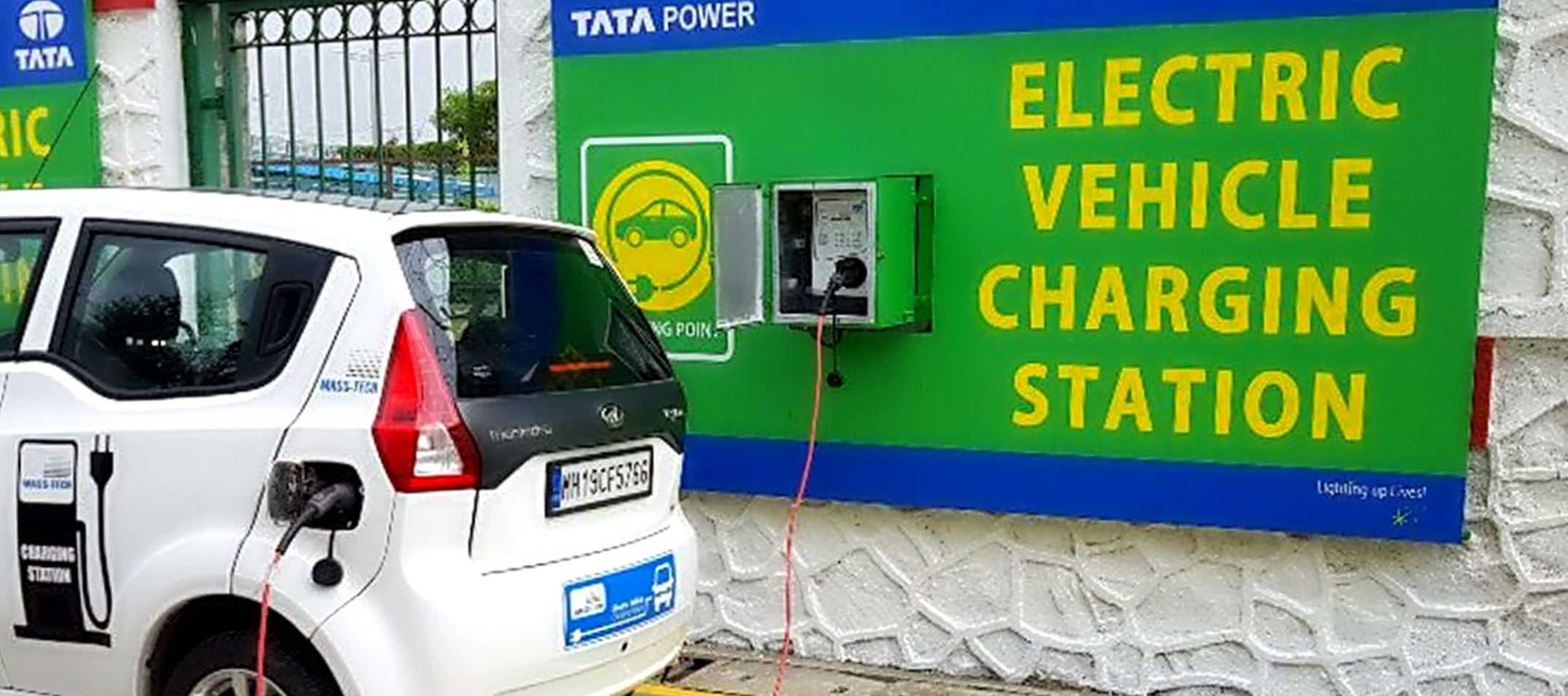
Minister for Environment and Climate Change Prakash Javadekar said that all the 5 lakh government vehicles on conventional fuel will be converted into e-vehicle in a phased manner. Besides their cost-effectiveness, these e-vehicle are eco-friendly and save consumption of petrol and diesel.
-
Kyarr intensifies, becomes the first Super Cyclone in Arabian Sea in 12 years
Cyclone 'Kyarr' intensifies to become the first Super Cyclonic storm in Arabian Sea in last 12 years after Cyclone Gonu ravaged the Oman coast in 2007. According to India Meteorological Department (IMD), the cyclone rapidly intensified onwards and became a Super Cyclone. The rapid intensification of cyclones being observed in recent years is posing an increasing challenge for the scientists to predict the intensity of the storm its likely path. As per the forecast, it is likely to continue its movement west-northwestwards towards Oman coast during the next five days. It could intensify further during the next 24 hours and weaken gradually thereafter. However it will remain 'severe' till November 1. The current assessment shows it is moving away from the west coast of India and currently lays centred over Eastcentral Arabian Sea, about 580 km west-southwest of Mumbai (Maharashtra), 1450 km east of Salalah (Oman) and 1010 km east-southeast of Masirah (Oman).
However, the sea condition remains phenomenal over eastcentral Arabian Sea around the system centre and is likely to remain so till 30th October and could improve gradually from the evening of 31st October. Gale winds gusting to 250 kmph are prevailing very over eastcentral and the adjoining westcentral Arabian Sea, as per IMD. The government's weather department has advised fishermen along the west coast not to venture into eastcentral Arabian Sea till Tuesday and into west central Arabian Sea from October 28 to November 1. Kyarr is the ninth super cyclone to have developed in the North Indian Ocean, after Super Cyclone Gonu in 2007. Gonu had made landfall in Oman with winds gusting upto 150km/hour, making it one of the strongest tropical cyclone on record to strike the Arabian Sea, killing over 50. It was also the strongest cyclone to have made a landfall in Oman.
Before that, Odisha was hit by a Super Cyclone in 1999 causing catastrophic damage to the state and massive loss of life and property. It remains one of the most destructive cyclone to have hit the eastern coastal state of Odisha.
International News
-
US’s Air Force's X-37B space plane lands after record 780 days in orbit
The US Air Force's X-37B, the mysterious Boeing-made space plane has landed at Kennedy Space Center after 780 days in orbit, comfortably surpassing the earlier record of 717 days, 20 hours and 42 minutes. That's more than three times the 240 days originally expected from the reusable vehicle, which just finished its fifth mission.
-
Pakistan to issue tourist visas to non-Indian Sikhs for Kartarpur visit
The Pakistan government will issue tourist visas to non-Indian Sikhs visiting the Kartarpur corridor and other 'gurdwaras' in the country during the 550th birth anniversary celebrations of Guru Nanak Dev. Under the Kartarpur Corridor agreement between India and Pakistan, pilgrims coming from India for one day would not require visa but they can only visit Gurudwara Baba Guru Nanak. However, those coming from other countries will need a visa and be free to visit other religious places. The Pakistan government will issue tourist visas to (non-Indian) Sikhs coming from Europe, Canada and America for their visit to the Gurdwara Darbar Sahib, Kartarpur Narowal, some 125kms from Lahore. Indian pilgrims will have to obtain a visa for touring other holy sites in Pakistan.
India and Pakistan signed the historic Kartarpur corridor agreement on October 24.
The Kartarpur corridor will connect the Dera Baba Nanak shrine in India's Punjab with Darbar Sahib at Kartarpur, just 4 kilometres from the International Border, located at Narowal district of Pakistan's Punjab province.
While Indian Prime Minister Narendra Modi will inaugurate the Indian side of the corridor on November 8, his Pakistani counterpart will open the corridor on November 9.
-
China passes cryptography law as it gears up for digital currency
China’s parliament has passed a new law on cryptography as the country gears up to launch its own digital currency. China’s central bank set up a research team in 2014 to explore launching its own digital currency to cut the costs of circulating traditional paper money and boost policymakers’ control of money supply. China’s proposed new digital currency would bear some similarities to Facebook Inc’s Libra coin and would be able to be used across major payment platforms such as WeChat and Alipay, a senior central bank official said last month. China’s cryptography law, which takes effect on Jan. 1, is aimed at “facilitating the development of the cryptography business and ensuring the security of cyberspace and information”. The law states that the state encourages and supports the research and application of science and technology in cryptography and ensures confidentiality.
Facebook’s proposed cryptocurrency has sparked concerns among global regulators that it could quickly become a dominant form of digital payment and a channel for money laundering given the social network’s massive cross-border reach.
-
Philippines army will buy India’s Brahmos missile
Philippines army is acquiring Indian-manufactured weapon in order to strengthen its coastal defences. In 2018, Indian PM Modi signed 4 bilateral agreements during his visit to Philippines, and acquiring Brahmos is one among them. The acquisition proves that India’s Act East Policy is being strengthened. India’s bilateral relation with the South Asian Countries and also with Philippines has diversified
It will also help achieve India’s defence exports target of Rs 35,000 crore in the next 5 years.
The Brahmos is a medium range cruise missile that can be launched from submarine, aircraft, ships and land. It is the fastest supersonic missile in the world. The design of the missile was a joint venture between Russian federation and India’s DRDO. The name of Brahmos is formed from the names of two rivers Brahmaputra in India and Moskva in Russia.
-
Sri Lankan Cabinet approves MCC grant of 480 million from US
Sri Lanka’s Cabinet of Ministers approved the implementation of 480 million US dollars MCC grant that consists of grant funds for traffic management in Colombo, road construction Island wide, and land administration improvements covering the whole country. These compact programmes to be funded by this project have been developed by the Sri Lankan officials of the line ministries and departments based on the needs of the country.
Sri Lanka is the 37th recipient of such grant funds from the people of the United States of America.
Sri Lanka began negotiation with MCC in 2001 at the direction of Prime Minister Ranil Wickremesinghe. MCC negotiations were led by the Ministry of Finance and the MCC compact developed and finalized by the Compact Development Team of the Prime Minister’s office.
-
Bangladesh to hold world's second largest Muslim congregation 'Bishwa Ijtema' in January 2020
Bangladesh will hold the first phase of Bishwa Ijtema, the second largest congregation of Muslim community after Hajj, from January 10 to 12, 2020 in Dhaka. The second phase of the Ijtema will be held from January 17 to 19.
Bishwa Ijtema is an annual event which is held in a 160 acre field on the bank of the Turag river at Tongi on the outskirts of Dhaka since 1967.
Bishwa Ijtema means world congregation and it draws in Muslims from about 150 countries. In 2010, 5 million people were estimated to take part in the Bishwa Ijtema. It is a gathering that focuses on prayer and meditation and is not open for political discussions
-
Long-awaited Syria constitutional committee meets for first time
Rival sides in Syria's long-running war have sat face to face for the first time after almost eight-and-a-half years of war, in an attempt to begin work on a new governing document.
A total of 150 delegates representing the government, opposition and civil society met at a constitutional committee meeting held inside the Council Chamber of the United Nations office in Geneva, Switzerland.
The members of the constitutional committee, which took almost two years of consultations to be formed, are tasked with reforming the Constitution before is put to the vote of the Syrian people.
-
Spain Confirms Offer to Host COP Climate Summit After Chile Abandons Plans Amid Anti-govt Protests
The Spanish government confirmed that it has offered to host the COP 25 climate summit after Chile abandoned plans to hold it due to deadly anti-government protests.
-
Eritrea, Saint Kitts join International Solar Alliance, membership rises to 83
Eritrea and Saint Kitts and Nevis have become the newest members of the International Solar Alliance (ISA). The two nations signed the ISA Framework Agreement during its second assembly held in New Delhi on October 31, 2019. With this, the total membership of the International Solar Alliance has risen to 83.
Indian Prime Minister Narendra Modi had pledged at the UN Climate Action Summit 2019 to increase the renewable energy capacity of India to 175 gigawatts (GW) by 2022 and further increase it 450 GW. According to the renewable energy ministry, India is moving towards achieving the 175 GW goal by 2022, as it has over 82 GW renewable capacity on the ground and around 70 GW at various stages of completion. The International Solar Alliance was jointly launched by India and France. It was officially launched by PM Narendra Modi at the India Africa Summit, ahead of the 2015 UN Climate Change Conference in Paris in November 2015. The main objective of the alliance is to address key challenges to increasing the use of solar energy in the ISA member countries.
-
Google buys smartwatch maker Fitbit for $2.1 billion, will try to compete with Apple
Google has bought Fitbit, a company that makes fitness bands and smartwatches. The company is paying $2.1 billion for the smartwatch maker. Fitbit makes Fitbit fitness bands like Charge and Inspire as well as smartwatches that are part of the company's Versa series. Apple has in the last few years seen impressive growth in the sale of Apple Watch, and with its focus on health-related features -- ECG through watch, for example -- the iPhone maker is well poised to make good use of opportunities that may arrive in tech-health space.
The interesting bit to note here is that Fitbit doesn't use Google's Wear OS software for its smart gadgets. Instead, it has its own software that is a mix of what the company has developed in-house as well as what it got when Fitbit bought Pebble.
-
China rolls out 5G mobile phone technology before schedule
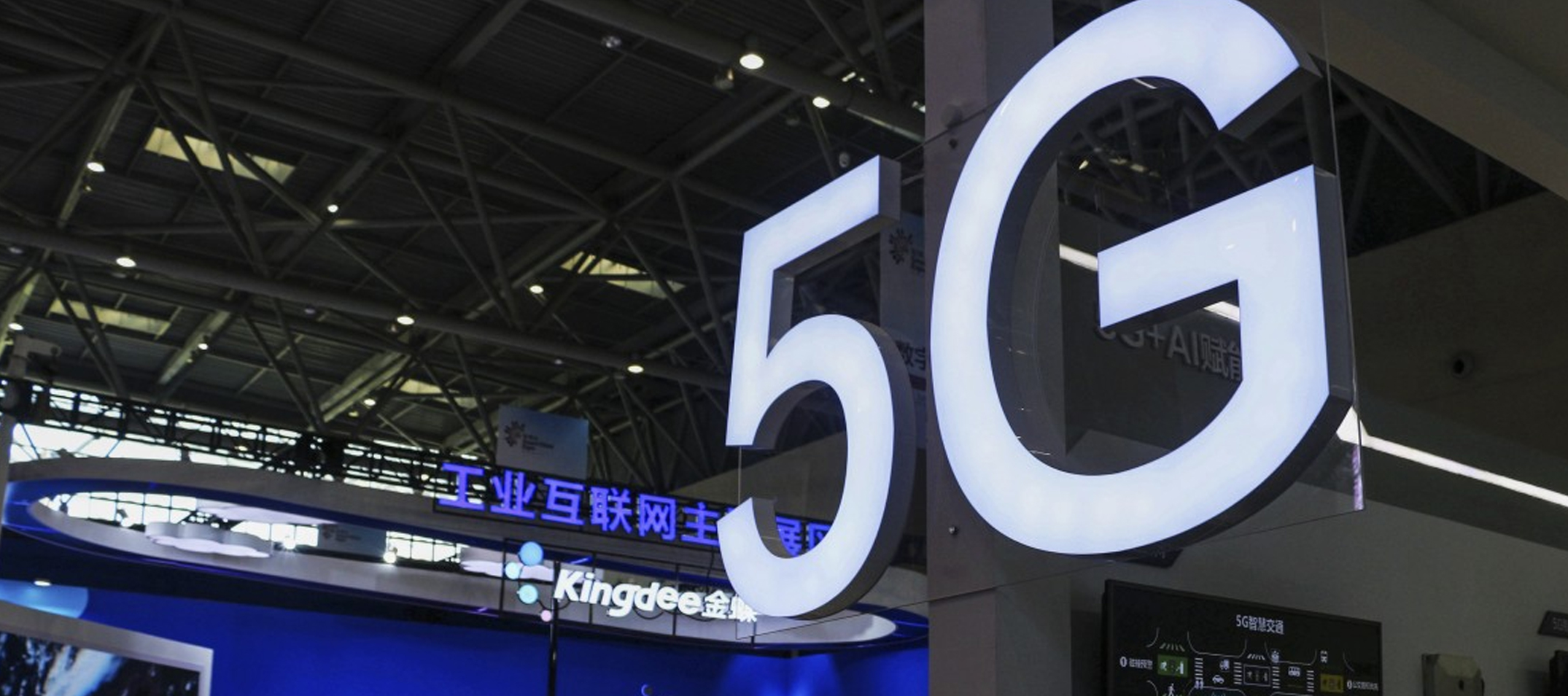
China's three state telecoms companies announced the roll out 5G mobile phone services, marking a key step in Beijing's ambitions to become a technology superpower while it remains locked in a trade war with Washington. China Mobile, China Unicom and China Telecom said on their websites and online stores that 5G plans, which start from as low as 128 yuan ($18.2) a month, allowing Chinese consumers nationwide to use the ultra-fast mobile internet service.
Smartphone companies from Xiaomi to Huawei have also unveiled new products in anticipation of the 5G roll out, with Huawei saying that it anticipates to start seeing a revenue uplift from the sector next year.
-
Turkey summons US ambassador over Armenian genocide resolution
Turkey has summoned the U.S. ambassador after lawmakers in Washington voted to recognize Ottoman-era mass killings of Armenians as a genocide and called for sanctions against Ankara.
The U.S. House of Representatives approved a resolution recognizing the genocide, which Ankara denies, and passed a bill aiming to impose fresh sanctions on Turkey over its military operation against Syrian Kurdish forces.
In response, the Turkish government summoned David Satterfield, the U.S. representative in Ankara. The Turkish foreign ministry rejected the genocide recognition as "meaningless" and "devoid of any historical or legal basis" in a statement suggesting that lawmakers had approved the resolution to "take vengeance" against Turkey over its incursion into Syria. The Armenian genocide — the massacre and deportation of hundreds of thousands of Armenians at the hands of Ottoman Turks in 1915 — is a sensitive issue in Turkey.
Turkey accepts that many Armenians in the Ottoman Empire died during World War I, but denies that the killings were systematic and firmly rejects the label "genocide." Most modern historians say that the killings do constitute genocide. In the EU, many countries and institutions have recognized the killings as genocide, often prompting outrage from Turkey.
The U.S. resolution comes amid deteriorating ties between Ankara and Washington following disputes over a number of issues, in particular Turkey's recent Syria offensive.
The Turkish foreign ministry also condemned the U.S. lawmakers' Syria sanctions bill, which passed with an overwhelming bipartisan majority of 403 to 16. The draft legislation "is incompatible with the spirit of our NATO Alliance.
People in News
-
Belgium gets first female PM as Sophie Wilmès takes office
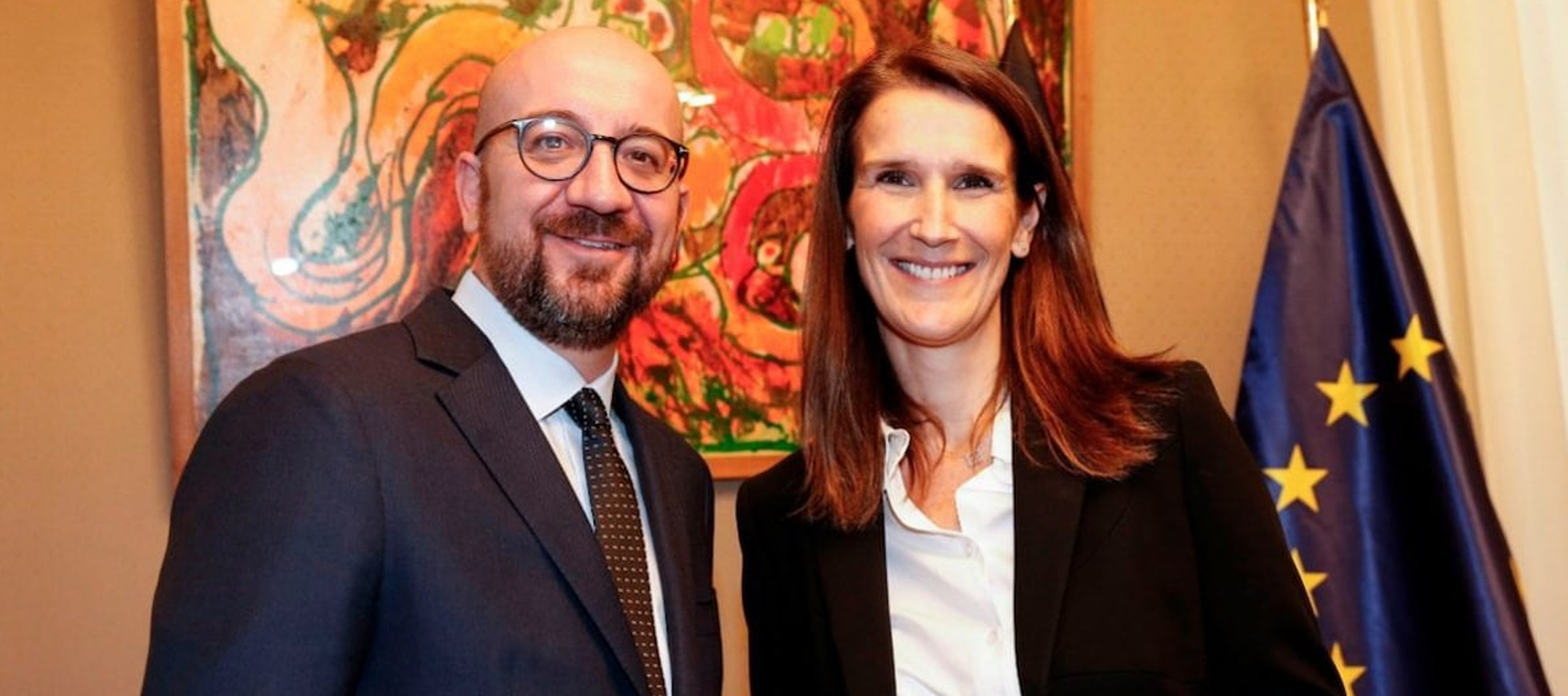
Belgium’s first female prime minister in its 189-year history has taken office, after Sophie Wilmès was named as the head of the country’s next caretaker government. Wilmès succeeds the liberal leader Charles Michel, who will become president of the European council on 1 December. Her role has been described as a poisoned chalice, as linguistically divided parties struggle to form a government. Belgium has had a caretaker government since December last year when Michel’s four-party coalition collapsed as the Flemish nationalists quit in protest at a UN migration pact. Elections in late May have so far failed to yield a fresh government and reinforced the country’s political divide, with the wealthier Dutch-speaking Flemish north voting in large numbers for the nationalist right, while the francophone south handed victory to traditional socialists.
Belgium went 541 days without a government in 2010-11, a world record for a country in peacetime. Northern Ireland’s Stormont assembly and executive, which has not sat for more than 1,000 days, overtook the Belgian total in August 2018, but is not considered eligible for the record since laws can still be passed at Westminster.
-
Alberto Fernandez wins Argentine presidential election
Peronist candidate Alberto Fernandez won Argentina’s presidential election in the first bringing to an end the crisis-plagued rule of market-friendly incumbent Mauricio Macri. Fernandez, a 60-year-old law professor, had 47.36 per cent of the votes - crossing the threshold for outright victory - after 75 per cent of the votes had been counted, with centre-right incumbent Mauricio Macri trailing at 41.22 per cent. His win also caps a remarkable political comeback for his running mate, ex-president Cristina Kirchner, who will be his vice-president.
-
Rafael Grossi elected as the new IAEA head
Rafael Mariano Grossi of Argentina has been elected as the new Director General of the International Atomic Energy Agency. Grossi succeeds Yukiya Amano of Japan, who passed away in July. The new Director General, appointed for a term of four years, will be the IAEA’s sixth head since it was founded in 1957. The Board envisages that he will assume office no later than 1 January 2020.
Yukiya Amano of Japan was the IAEA’s fifth Director General. He was first appointed to the office effective December 2009 and reappointed in 2013 and 2017. He passed away on 18 July 2019. He followed Mohamed El-Baradei (1997-2009), Hans Blix (1981-1997), Sigvard Eklund (1961-1981) and Sterling Cole (1957-1961).
-
Justice SA Bobde Appointed Next Chief Justice, Will Take Oath On November 18
President Ram Nath Kovind signed a warrant appointing Justice Sharad Arvind Bobde as the next Chief Justice of India. Justice Bobde, the next senior-most judge in the Supreme Court pecking order after CJI Ranjan Gogoi, will take oath on November 18. A judge since 2000, Justice Bobde joined the Bombay High Court as an additional judge. He was nominated as the Madhya Pradesh High Court Chief Justice in October 2012. In April 2013, he was elevated to the Supreme Court.
Justice Bobde was part of the in-house panel that probed the allegations of sexual harassment against CJI Gogoi. He was also on the five-judge bench hearing the Ayodhya land dispute case that just concluded hearings and is expected to announce the verdict before CJI Gogoi’s retirement.
Justice Bobde’s term will end on April 23, 2021.
-
Three Indian-origin CEOs in Harvard Business Review CEO 100 List
Three Indian-origin chief executives have made it to the top 10 of Harvard Business Review’s The CEO 100, 2019 Edition. Adobe’s Shantanu Narayen, who took over in 2007, occupied the sixth spot, followed by Mastercard’s Ajay Banga (assumed the post in 2010) at seven and Microsoft’s Satya Nadella (2014) at nine. Notably, all three are CEOs of top IT firms in the United States.
IT firms, in fact, seemed to rule the roost as six of the top 10 company CEOs were from the sector. The US also had the most CEOs on the list, with six rankings in the top 10, followed by France (two), Belgium and Spain (one each). NVIDIA’s co-founder and CEO Jensen Huang topped the list. Huang, a Taiwanese immigrant, who studied electrical engineering at Oregon State and Stanford, has headed the company since 1993.
Awards
-
President Kovind presents National Corporate Social Responsibility Awards
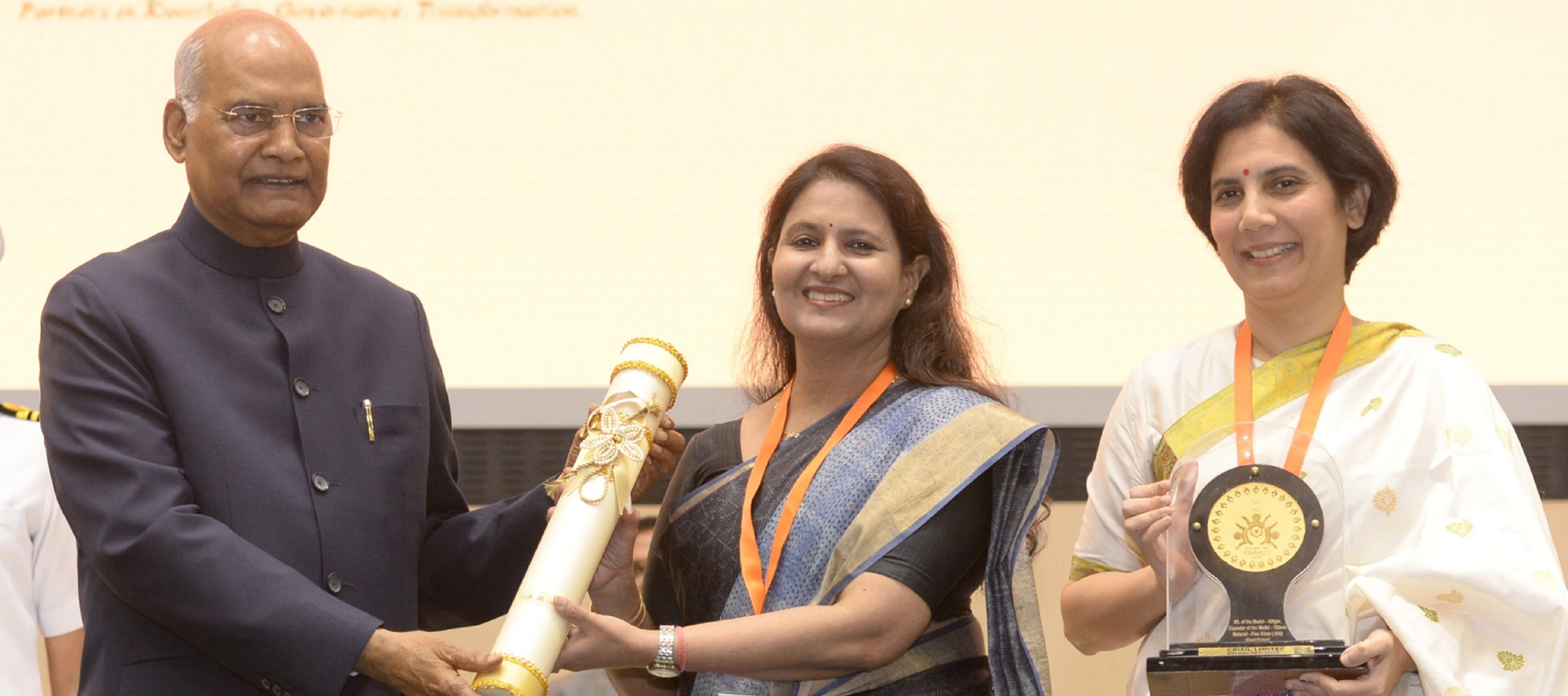
President Ram Nath Kovind presented the National Corporate Social Responsibility Awards. The awards has been instituted by the Ministry of Corporate Affairs to recognize corporate initiatives in the area of CSR to achieve inclusive growth and sustainable development. Nineteen companies have been selected from a total of 528 entries.
-
Vyas Samman 2018 conferred on Leeladhar Jagoori
The 28th Vyas Samman for the year 2018 was conferred on noted Hindi poet and writer Leeladhar Jagoori for his poetry collection ‘Jitne Log Utne Prem’, at a function held in New Delhi. Jagoori was conferred the prestigious award for his poetry collection by renowned author and scholar Govind Mishra. Well known Hindi poet Leeladhar Jagoori’s poems often celebrate love and hope. The poetry collection ‘Jitne Log Utne Prem’ is Jagoori’s 12th anthology of poetry. Jagoori’s award citation reads- He presents a new world of experience, language, narrative and that his poems are ever-changing sounds of experiments and progress. The prestigious award was started in 1991 and is conferred especially for contributions to Hindi literature. It is given by K K Birla Foundation for an outstanding literary work in Hindi authored by an Indian citizen published during last 10 years. It carries a prize money of Rs. 4 lakh along with a citation and plaque. The KK Birla Foundation also confers Saraswati Samman and Bihari Puraskar for literature in Indian languages.
-
Fourteen start-ups selected for 2019 SEED Awards
Fourteen start-ups have been selected for this year’s SEED awards. The list of finalists was announced on October 24, 2019. The awards, an annual affair, are granted to organisations working on sustainable development. For 2019, out of 906 applications across nine countries, 14 winners and 52 finalists have been selected for innovative and locally-led start-up eco-inclusive enterprises.
The award highlights the contribution of green and social enterprises to advancing the Sustainable Development Goals (SDGs). Every year, awards are decided under various categories.
This year’s categories includes SEED Low Carbon, SEED Africa Awards, SEED South Africa Climate Adaptation Awards and SEED Gender equality award.
SEED was founded by the United Nations Environment Programme (UN Environment), the United Nations Development Programme (UNDP) and International Union for Conservation of Nature (IUCN) at the 2002 World Summit on Sustainable Development in Johannesburg.
It is a global partnership for action on sustainable development and the green economy. This initiative works in Asian and African countries including Ghana, India, Indonesia, South Africa, Thailand and Uganda and supports small and growing enterprises with business and capacity-building support. Under the SEED Low Carbon category, an organisation called Aikya Organics, located in Kanpur, Uttar Pradesh, has won the award from India. Aikya Organics has been working on promoting gender equality by training 1,200 women farmers. They also try to achieve SDGs by providing livelihood opportunities to framers and following natural farming techniques. The non-profit sells various products including local rice grains, mustard oil and organic lentils under the name Dhaanika.
Apart from Aikya, four more finalists have been selected from India which include Stonesoup, Aarohana Ecosocial Development, Ecozen Solutions and Farmers Fresh Zone.
Similarly, Fang Thai, an organisation from Thailand, has also been awarded. It manufactures paper and packaging material from rice straw.
The organisation came into existence to provide employment options after the harvest season and make use of crop residue which was being burnt by farmers, releasing increased amounts of carbon dioxide into the air. By converting the straw into paper, Fang Thai are reusing the by-products and at the same time, reducing carbon dioxide emissions.
Another awardee, Mycotech, a company based in Indonesia, makes leather-like materials from a fungi, which are further converted to bags, wallets etc.
The technology is similar to making a traditional dish called Tempe. The dish is made by fermenting soyabeans. During this process, a fungi called Rhizopus is formed on the beans and forms a cake structure which is also hard.
Using the same technique, Mycotech manufactures fungi leather which is vegan leather and follows zero waste philosophy.
-
Delhi Police Special Cell, ITBP team awarded Union Home Minister's Special Operation Medal for 2019
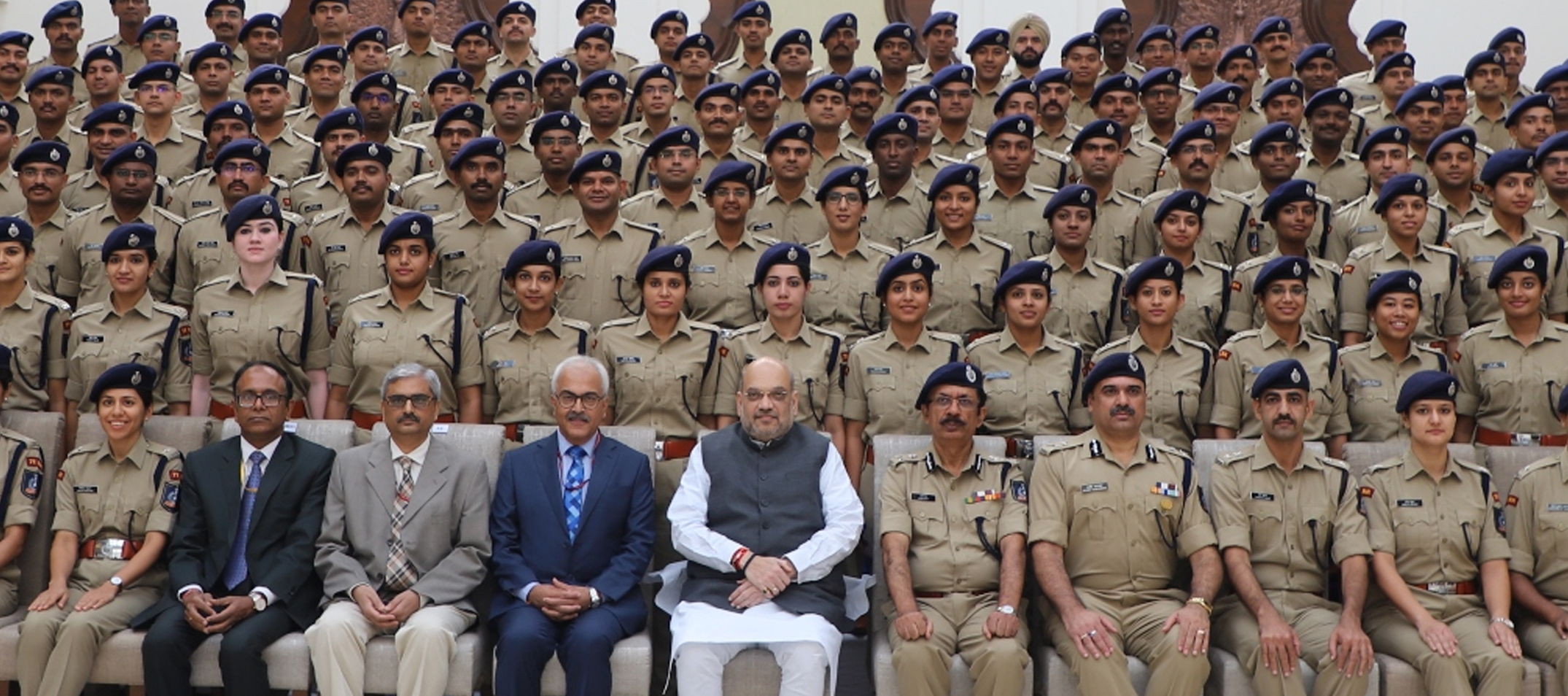
Delhi Police Special Cell's Deputy Commissioner of Police Pramod Kushwaha, Assistant Commissioner of Police Attar Singh, Inspector Shiv Kumar, ASI Rajesh Sharma and Head Constable Adesh Kumar were awarded Union Home Minister's Special Operation Medal for 2019.
The Delhi Police received the honour for arresting two Jammu and Kashmir-based terrorists, Abdul Latif Ganai and Hilal Ahmad in Jan 2019.
Sixteen officials from Indo-Tibetan Border Police were also given the honour for the successful Nanda Devi Search and Rescue Mission.
The mission involved the successful retrieval of seven dead bodies near Nanda Devi in Pithoragarh after a 500 hours operation.
The prestigious Home Minister's Special Operation Medal was instituted in June last year and it aims to promote high professional standards of Investigation of Crime in State and Union Territory Police and Central Investigating Agencies (CIAs) in the country.
Police Officers of States and Union Territories, Central Police Organisations (CPOs), Central Armed Police Forces (CAPFs) and security organisations involved in special operations are eligible for it.
Days and Events
-
Ministry of Non Renewable Energy NRE Hosts 2nd Assembly of International Solar Alliance (ISA) on 31 October in New Delhi
Delegations from 78 countries are participating in this Assembly, this includes 29 Ministerial delegations of which 25 are from ISA member countries, 2 from signatory countries and further 2 from prospective member countries participated in the second general assembly of ISA in New Delhi. The Assembly also has participation from important ISA Partners, and other invitees.
Under the impending threat of climate change, renewable have assumed atmost importance in the global agenda. The International Solar Alliance (ISA is India’s contribution to the global efforts for decarbonizing the energy systems and allowing countries around the world in align domestic priorities with global sustainability commitments. Conceived as a vision of the Hon’ble Prime Minister, ISA is reflection of India’s commitment for universalizing the use of solar energy. It has the potential to transform the world’s energy scenario while yielding social and economic gains for the global population.
-
National Unity Day 2019-31 October
The National Unity Day or Rashtriya Ekta Diwas is observed every year on October 31, on the birth anniversary of Sardar Vallabhbhai Patel, who is also known as the 'Iron Man of India'. The National Unity Day 2019 commemorates Patel’s 144th birth anniversary.
PM Narendra Modi commemorated the National Unity Day by paying tribute to Sardar Vallabhbhai Patel on his birth anniversary at the Statue of Unity in Kevadia, Gujarat. The Statue of Unity, which is the world’s tallest statue, depicts Vallabhbhai Patel, who was one of India’s most prominent leaders during its freedom movement.
The National Unity Day was first observed in 2014 when the Narendra Modi-led NDA government came to power. The government decided to observe Sardar Vallabhbhai Patel’s birth anniversary, October 31 as the Rashtriya Ekta Diwas every year.
-
World Cities Day, 31 October
Theme- Changing the world: innovations and better life for future generations
The United Nations General Assembly has designated the 31st of October as World Cities Day, by its resolution 68/239. The Day is expected to greatly promote the international community’s interest in global urbanization, push forward cooperation among countries in meeting opportunities and addressing challenges of urbanization, and contributing to sustainable urban development around the world.
The general theme of World Cities Day is Better City, Better Life, while each year a different sub-theme is selected, to either promote successes of urbanization, or address specific challenges resulting from urbanization.
-
India will host 20th SCO’s CHG meeting in 2020
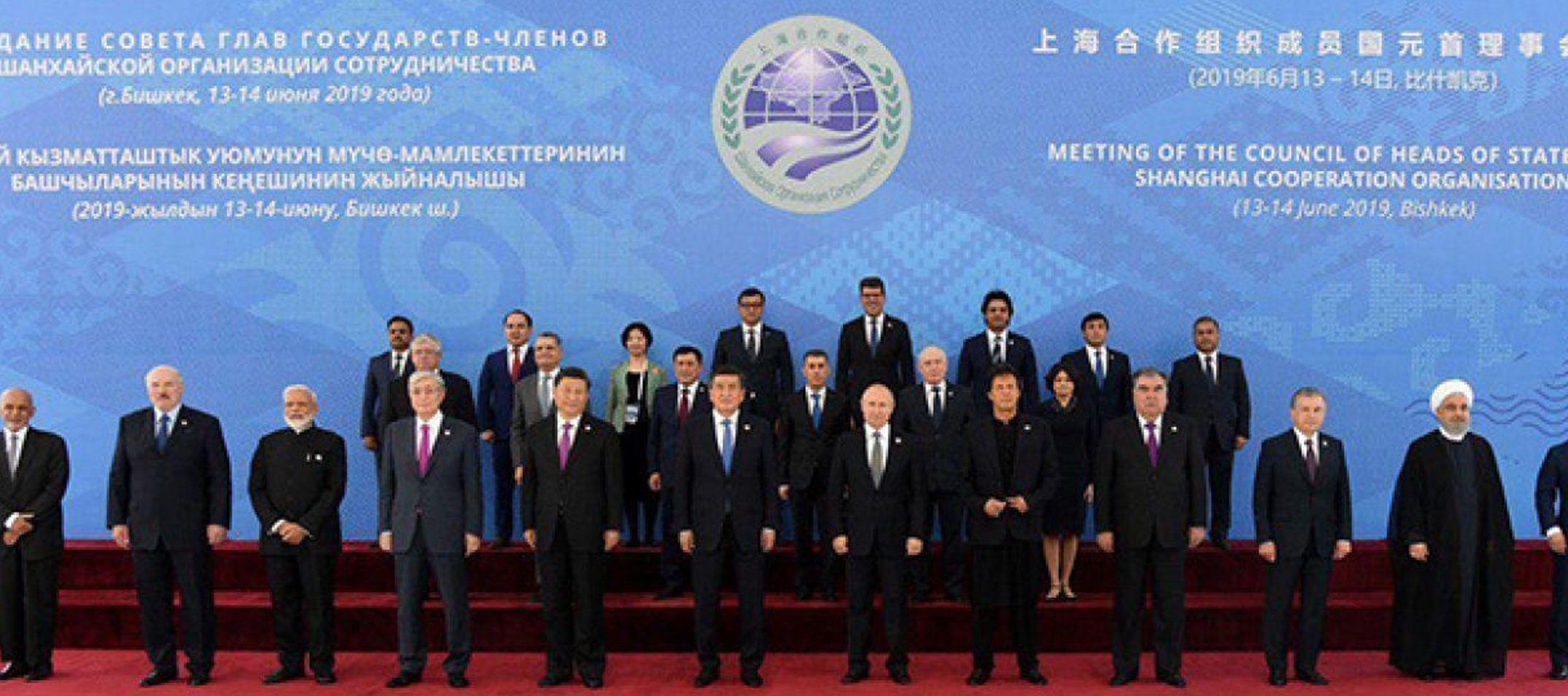
The Defence Minister Shri Rajnath Singh addressed the Council of Heads of Government of SCO at Tashkent in Uzbekistan. He represented as a Special Envoy of PM Modi at the conference. During the meet, it was decided that the next meeting of Council of Heads of Government in 2020 is to be conducted in India.
The military exercise “CENTER 2019”, SCO joint military exercise that was held by Russia was congratulated at the summit. 20,000 units of military equipment, 128,000 soldiers and 600 aircraft participated in the event. The military chiefs from China, Kazakhstan, India, Kyrgystan, Uzbekistan, Pakistan and Tajikistan participated in the event.
India called upon the member countries to strengthen and implement existing international laws and mechanisms to combat terrorism.
India listed its recent initiatives to provide an enabling economic ecosystem for partner countries to invest and do business in India. It includes allowing 100% foreign investment in coal mining, easing sourcing norms for single brand retailers, approving 26% overseas investment in digital media, etc
India also announced that it is ready to share its experience and expertise in skill development, tele medicine, resource mapping, launching satellites, affordable pharmaceuticals, hospitality, tourism, finance, etc.
-
Union Minister of Home Affairs Shri Amit Shah inaugurated SCO Joint Urban Earthquake Search & Rescue Exercise (SCOJTEX)-2019
Union Minister of Home Affairs Shri Amit Shah inaugurated the Shanghai Cooperation Organization Joint Exercise on Urban Earthquake Search & Rescue (SCOJtEx-2019) on 04th November, 2019 at Dr. Ambedkar International Center, New Delhi. On the initiative of Government of India, the National Disaster Response Force (NDRF) hosted “Shanghai Cooperation Organization (SCO) Joint Urban Earthquake Search & Rescue Exercise (SCOJtEx.)-2019” of all 08 SCO member countries, with the aim to rehearse the disaster response mechanism, share knowledge, experience, technology & also for mutual coordination, etc. This exercise shall also provide an opportunity to enhance the coordination & co-operation involving multi-agency operations in an earthquake scenario.
The participants of all 08 member countries namely China, India, Kazakhastan, Kyrgyzstan, Pakistan, Russia, Tajikistan and Uzbekistan shall be participating in this exercise.
The four day long simulation exercise shall be conducted as per the International Search & Rescue Advisory Group (INSARAG) methodology & guidelines. There will be a Joint Urban Earthquake Search & Rescue Exercise for Shanghai Cooperation Organization member states followed by the Shanghai Cooperation Organization experts meeting of Ministries responsible for Prevention and Elimination of Emergency Situation. The main focus of Shanghai Cooperation Organization Joint Exercise on Urban Earthquake Search & Rescue (SCOJtEx-2019) shall be to test the region’s preparedness and resilience towards effective activation of Inter- governmental interaction for immediate response. Besides above, representatives from International Search & Rescue Advisory Group (INSARAG), Asian Coordination Centre for Humanitarian Assistance (AHA), Brazil, Mongolia, South Africa have been invited as observers. Representatives from the embassies of all SCO member nations, heads of State Disaster Response Force (SDRF) and representatives of other stakeholders shall also be participating in this exercise.
Sports
-
Tokyo Olympics 2020: Mary Kom to represent Asian bloc in athlete ambassadors group
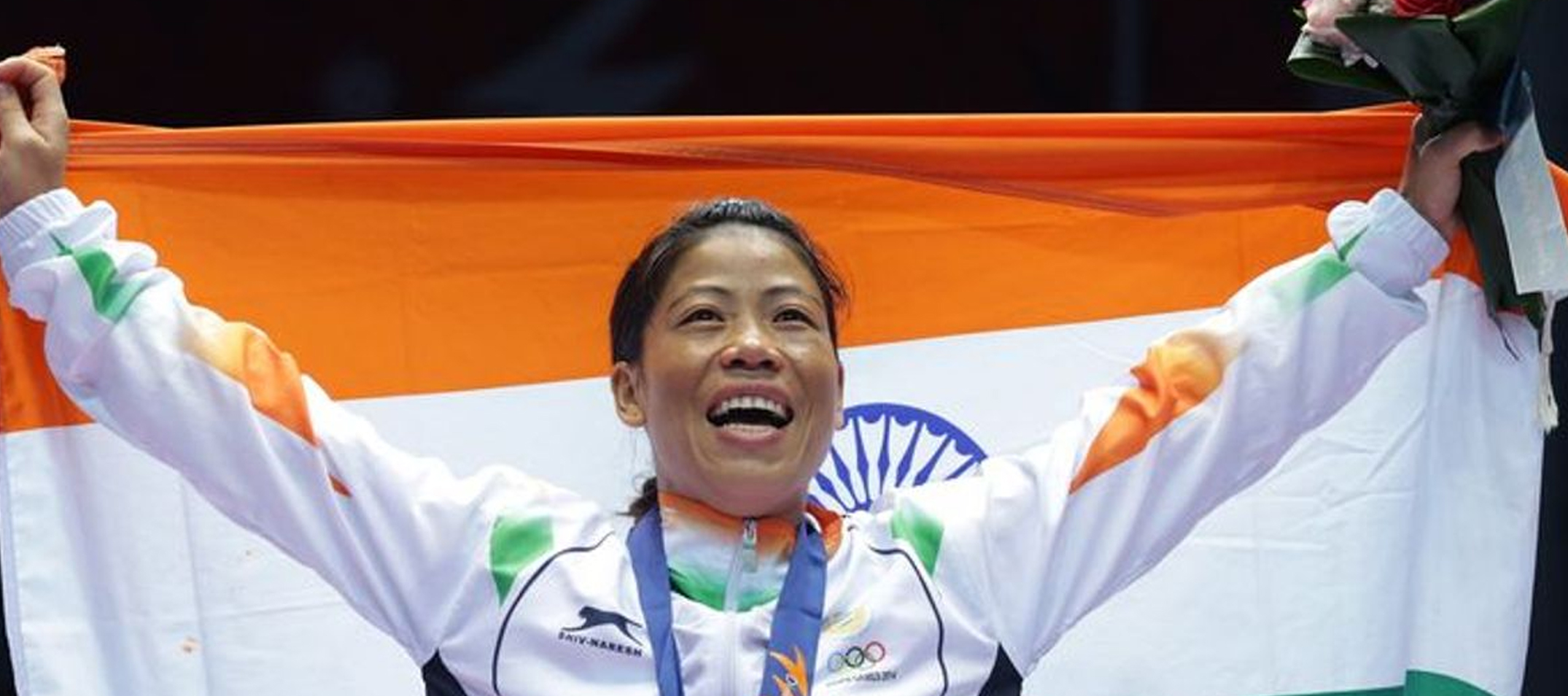
Six-time world champion M C Mary Kom has been included in a 10-strong athlete ambassadors group to represent boxers in the build-up to next year's Tokyo Olympic Games by the IOC's Task Force for the sport. Mary Kom will represent the Asian bloc in the group, which also comprises two-time Olympic and world gold-medallist Vasyl Lamachenko and five-time world champion and 2016 Olympic gold-winner Julio Cesar La Cruz among others. The 36-year-old Indian recently surpassed herself as the most successful boxer in the history of the world championships when she claimed her eighth medal, a bronze, at the marquee event's latest edition in Russia.
-
AIFF Signs Memorandum of Understanding with German Football Association
All India Football Federation (AIFF) signed a Memorandum of Understanding (MoU) with German Football Association (DFB) in New Delhi pertaining to football education for coaches and referees, apart from national team exchanges and marketing initiatives. The signing of the agreement coincided with German Chancellor Angela Merkel's visit to India for talks with Prime Minister Shri Narendra Modi.
The MoU covers a wide range of areas pertaining to Indian football such as coach education (including grassroots), talent scouting and promotion, deployment of professional referees to India, exchange between national teams and visit of DFB all-star team (if feasible), joint marketing initiatives and sports administration via discussions on their competition management solutions. Football cooperation among states is also one of the agendas in respective Government's discussion.
-
India women’s hockey team secure Tokyo Olympics berth
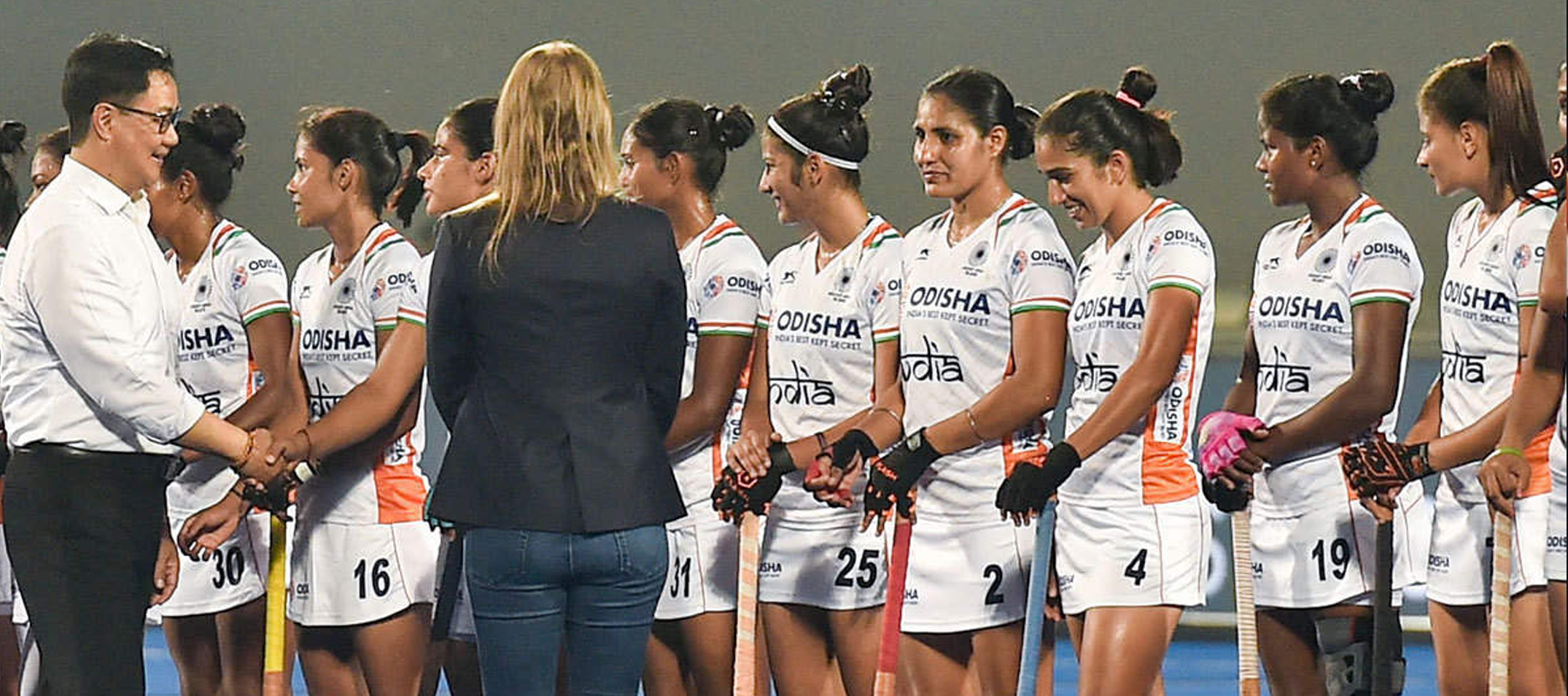
The Indian Women’s Hockey team secured their berth in the Tokyo 2020 Olympics as the unit led by Rani Rampal defeated USA 6-5 on the aggregate scoreline at the Kalinga Stadium in Bhubaneswar.
This is the third time the women’s team have qualified for the Olympics. They qualified for the Olympics in 1980 and then again in 2016. With this win, India’s women’s team have qualified for successive editions of the Olympics for the first time.

